Preparing Your Practice for an Emergency
Do you have a plan in place for when it’s time to retire?
What if an unexpected emergency comes up and you have to halt practice, either temporarily or permanently?
The topic of succession planning and other issues surrounding the cessation of practice was one of the top initiatives of State Bar of Texas Immediate Past President Laura Gibson.
“We started studying this issue back in 2018 with a succession workgroup,” she said in a press release. “By 2021, those efforts led to a new rule authorizing attorneys to voluntarily designate a custodian attorney to assist with the cessation of practice.”
Though there are many steps in ceasing a practice, the easiest and most important is appointing a custodian attorney, says the Texas Bar Practice blog.
The Texas Bar Practice blog is run by the Law Practice Resources Division of the State Bar.
On the blog, the State Bar has published a step-by-step succession planning guide.
Called the Succession Planning Toolkit, you’ll find a link that will take you to the State Bar’s webpage where you can designate a custodian attorney.

You’ll also find more information on Texas Disciplinary Rule
13.04—the rule that allows for attorneys to designate custodian attorneys.
Other topics extensively covered in the toolkit:
•File management, including
sample clauses you might want to include in your fee agreements/ termination letters relating to how long you will retain unclaimed client files;
•The procedure for ceasing practice, including details especially for court-appointed custodian attorneys, as well as closing IOLTA accounts; and
•Transition planning, including helpful tips on handling the various passwords your practice probably uses for financial, social media, and brief filing accounts; the different processes and rules
regarding the dissolution of different types of professional entities; and details relating to temporary cessation of practice.
“This toolkit is a one-stop shop for attorneys to find everything they need to plan ahead and prevent their partners or loved ones from being left to handle everything if the unexpected happens,” said State Bar President Cindy V. Tisdale.
The toolkit was created by the State Bar’s Law Practice Management Committee and the Law Practice Management Program.
austinbar.org OCTOBER 2023 | VOLUME 32, NUMBER 8
AL








Get started at lawpay.com/austinbar 866-730-4140 TOTAL: $1,500.00 New Case Reference **** **** **** 9995 *** Trust Payment IOLTA Deposit YOUR FIRM L OGO HERE PAY AT TO RNEY PO WE R ED BY 22% increase in cash flow with online payments Vetted and approved by all 50 state bars, 70+ local and specialty bars, the ABA, and the ALA 62% of bills sent online are paid in 24 hours Data based on an average of firm accounts receivables increases using online billing solutions. LawPay is a registered agent of Synovus Bank, Columbus, GA., and Fifth Third Bank, N.A., Cincinnati, OH. Trusted by 50,000 law firms, LawPay is a simple, secure solution that allows you to easily accept credit and eCheck payments online, in person, or through your favorite practice management tools.
LawPay!
–Law
+ Member Benefit Provider
I love
I’m not sure why I waited so long to get it set up.
Firm in Ohio
OCTOBER 2023 | VOLUME 32, NUMBER 8
AU ST INL AW Y ER AL AL
INSID E
FEATURED ARTICLES
1 Preparing Your Practice for an Emergency
18 Decriminalizing Mental Health in Travis County: Part 3
20 Austin Bar Members Give Arguments in Texas Supreme Court
22 Texas Veterans Commission Awards $130,000 Grant to Austin Bar Foundation’s Veterans Legal Assistance Program
24 Jusge Lora Livingston Elected as ABA Delegate
25 Austin Bar Fellow Appointed as Chair of Texas Board of Criminal Justice
26 New Laws of Interest
28 Teaching Law in a Former Communist State
30 Ethical Issues Raised by Lawyers’ Use of ChatGPT
ONLINE
austinbar.org
NEWS & ANNOUNCEMENTS
New Austin Bar Committee!
The Austin Bar has launched the new Mentorship Committee, which is focused on providing informal opportunities for mentorship among lawyers of all ages and practice areas. ciary, and more! Join in your austinbar.org member profile!

UPCOMING EVENTS
OCT. 16 VETERANS’ LEGAL ADVICE CLINIC
1:30 - 4 p.m. VA Outpatient Clinic 7901 Metropolis Dr. Register at austinbar.org
CONNECTIONS ONLINE
austinbar.org
EMAIL billy@austinbar.org
MAIL Austin Bar Association 712 W. 16th Street Austin, TX 78701
SOCIAL
LIKE facebook.com/austinbar

FOLLOW twitter.com/theaustinbar
WATCH vimeo.com/austinbar
STREAM @AustinBarAssociation
FOLLOW instagram.com/theaustinbar




TEXT austinbar to 313131 for up-to-date news + info Message & data rates may apply.
RISK-TAKING CAN BE FUN...

…BUT NOT WHEN IT’S A MALPRACTICE CLAIM.
Real Estate Litigation Claim*
• Lawyer sued for error in service of process
• Damages of up to $1,000,000 alleged
• TLIE settled claim for $2,500
INSURED BY TLIE IF NOT INSURED
Total out-of-pocket = $1,000 (deductible)
Defense costs $35,000
Settlement + $2,500
Total out-of-pocket = $37,500
* Based on actual claim handled by TLIE.
FIND OUT MORE: TLIE.ORG or (512) 480-9074
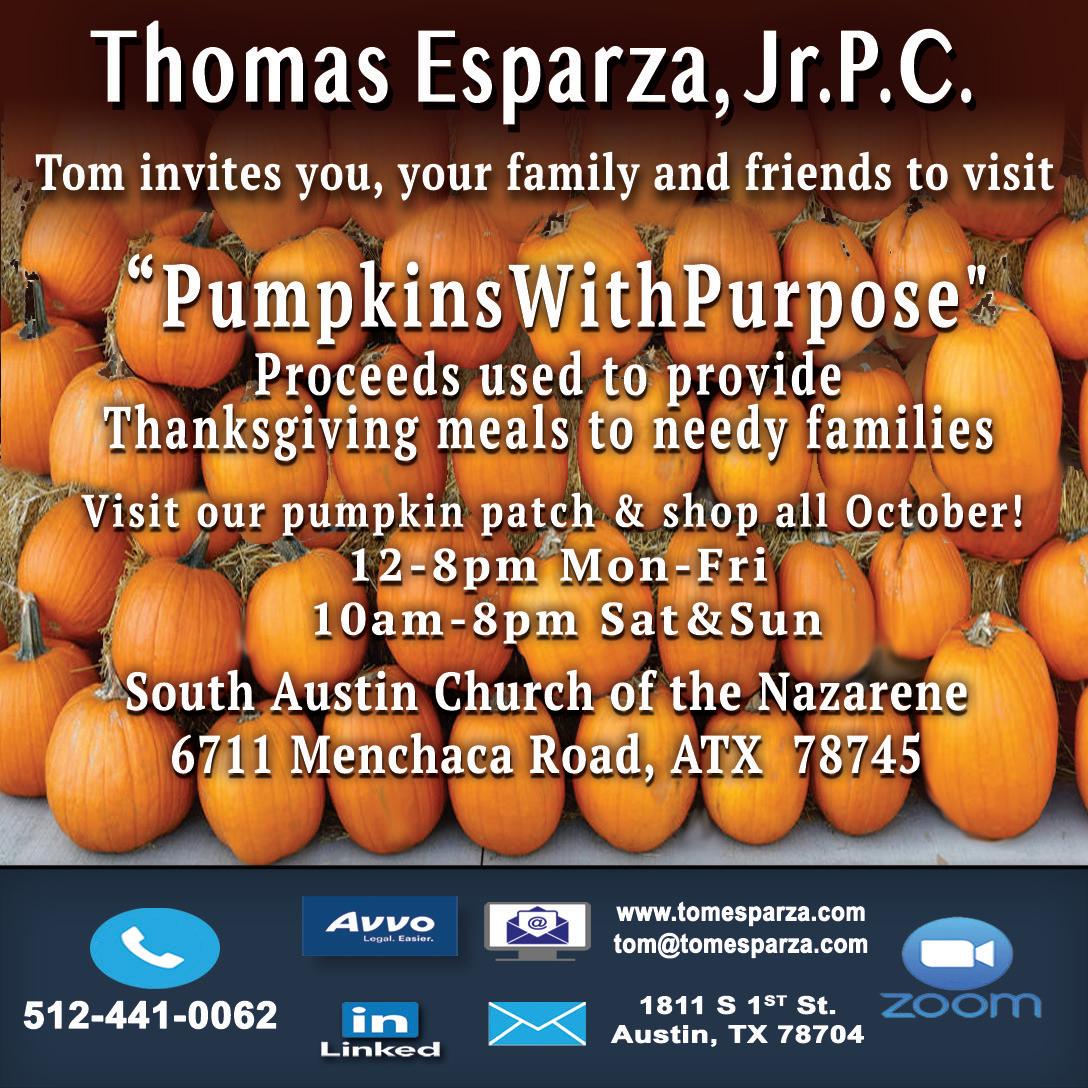
CONTENTS
OCTOBER 2023 | AUSTINLAWYER 3
IN EVERY ISSUE 8 Kudos 12 AYLA
Federal Civil Court Update
Third Court of Appeals Civil Update
Third Court of Appeals Criminal Update
President’s Column
Opening Statement
14
15
16
DEPARTMENTS 6
10
AUST INL AW Y ER AL AL
OFFICIAL PUBLICATION OF THE AUSTIN BAR ASSOCIATION

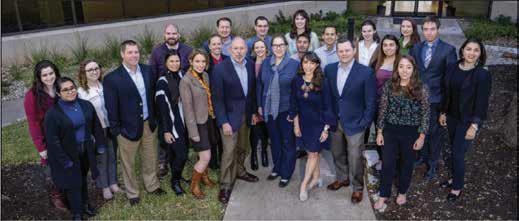
AUSTIN BAR ASSOCIATION

Justice Chari Kelly President
Mary-Ellen King President-Elect
Maitreya Tomlinson Secretary
Judge Maya Guerra Gamble Treasurer
Amanda Arriaga Immediate Past President
AUSTIN YOUNG LAWYERS ASSOCIATION
Sarah Harp President
Emily Morris President-Elect
Jenna Malsbary Treasurer
Gracie Wood Shepherd Secretary
Blair Leake Immediate Past President
Austin Lawyer
©2023 Austin Bar Association; Austin Young Lawyers Association

EXECUTIVE OFFICES
712 W. 16th Street
Austin, TX 78701
Email: austinbar@austinbar.org
Website: austinbar.org
Ph: 512.472.0279

DeLaine Ward Executive Director
Debbie Kelly Associate Executive Director
Rachael K. Jones Editor-In-Chief
Billy Huntsman Managing Editor
Austin Lawyer (ISSN #10710353) is published monthly, except for July/August and December/January, at the annual rate of $10 membership dues by the Austin Bar Association and the Austin Young Lawyers Association, 712 W. 16th Street, Austin, TX 78701. Periodicals Postage Paid at Austin, Texas. POSTMASTER: Send address changes to Austin Lawyer, 712 W. 16th Street, Austin, TX 78701.

Austin Lawyer is an award-winning newsletter published 10 times a year for members of the Austin Bar Association. Its focus is on Austin Bar activities, policies, and decisions of the Austin Bar board of directors; legislation affecting Austin attorneys; and other issues impacting lawyers and the legal professionals. It also includes information on decisions from the U.S. District Court for the Western District of Texas and the Texas Third Court of Appeals; CLE opportunities; members’ and committees’ accomplishments; and various community and association activities.
The views, opinions, and content expressed in this publication are those of the author(s) or advertiser(s) and do not necessarily reflect the views or opinions of the Austin Bar Association membership, Austin Bar Association board of directors, or Austin Bar Association staff. As a matter of policy, the Austin Bar Association does not endorse any products, services, or programs, and any advertisement in this publication should not be construed as such an endorsement.
Contributions to Austin Lawyer are welcome, but the right is reserved to select and edit materials to be published. Please send all correspondence to the address listed above. For editorial guidelines, visit austinbar.org in the “About Us” tab.
4 AUSTINLAWYER | OCTOBER 2023

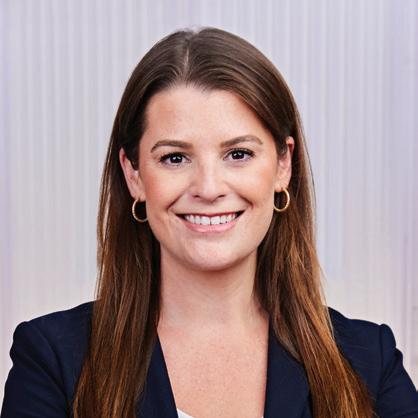
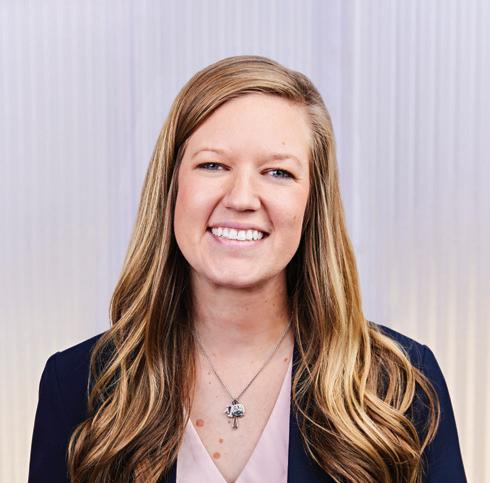


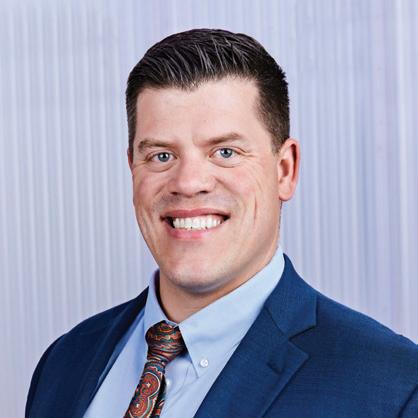



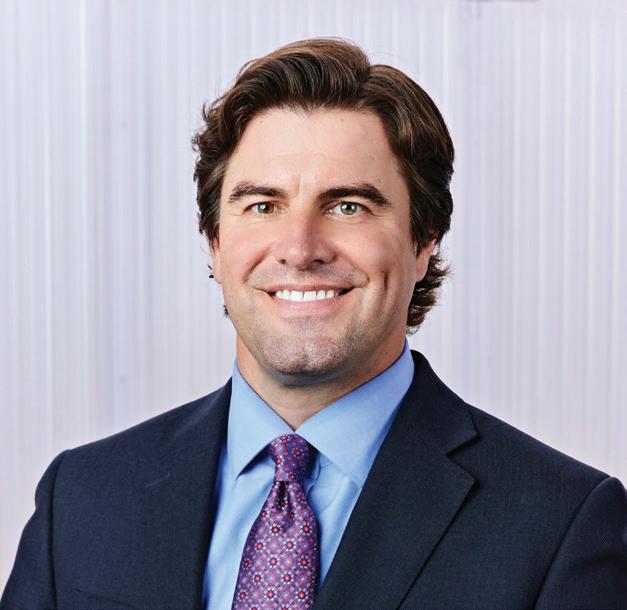
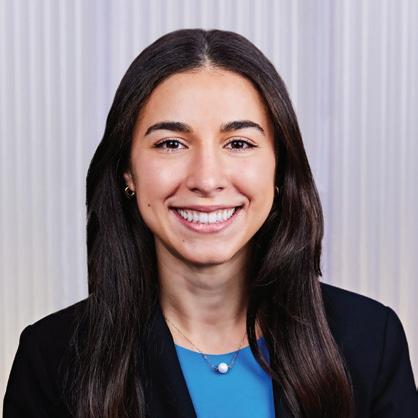 Jaynie Badgett
Liz Duggan
Mark Pryor
Rick Cofer
Garrett Emerson
Ramey Ko
Alyse Munrose
Jeffrey Connelly
Geoffrey Puryear
Natalia Tsokos
Jaynie Badgett
Liz Duggan
Mark Pryor
Rick Cofer
Garrett Emerson
Ramey Ko
Alyse Munrose
Jeffrey Connelly
Geoffrey Puryear
Natalia Tsokos
Don’t Forget to Have a Little Fun!
THIRD COURT OF APPEALS


people’s moods and mental health when experienced on their own, but when people experience these three states at once, the effects that they report are almost magical. When people are having actual



These are activities that take up our leisure time but don’t inspire playfulness or connection—for example, spending hours scrolling on social media or binge-watching television. Take some time to identify the sources of fake fun in your life and reduce the amount of time you spend on them. Use those extra hours each week for the pursuit of true fun.

2. Find “fun magnets.” Every one of us defines fun differently. Identify three experiences from your life in which you remember really having fun. Did you laugh out loud? What were you doing? Who were you with? What made the experience feel great? Those are your fun magnets. They can be as simple playing a game with your kids or catching up with friends over brunch. Once you know your “fun “magnets,” you can make better decisions about how to allocate your time.
3. Put fun on your calendar. While you can’t guarantee fun, you can make fun more likely to occur simply by prioritizing the people and activities that are the most likely to create it for you.
Whether you’re a musician, comedian, dancer, magician, or have a unique talent to share, you’re invited to perform. Each performance should be between three to five minutes in length. To sign up as a performer, please email Brad Houston at brad@ houstonfishlaw.com. Include your name, contact information, and a brief description of your act.
If you prefer to sit back and enjoy the show, you’re more than welcome! Invite your family for a night of entertainment. Please bring your own lawn chair or blanket for seating. Comfort is key to enjoying the show.
We’ll provide refreshments to keep you fueled and refreshed throughout the event; we just ask for spectators to make a small donation (suggested amount: $25) to the Austin Bar Foundation. AL
Hilgers House, 712 West 16th St. Why: Fun Magnet!
a JANUARY 27, 2024 6 AUSTINLAWYER | OCTOBER 2023
The Austin Bar Foundation Annual Gala
When experience matters.
Celebrating its 23rd year, Lakeside is proud to welcome Jeff Jury and Tracy Allen, both past presidents of the International Academy of Mediators with decades of experience mediating and arbitrating cases. Collectively, Lakeside mediators have presided over 15,000 mediations and hundreds of arbitrations.

partners:
associate attorneys:
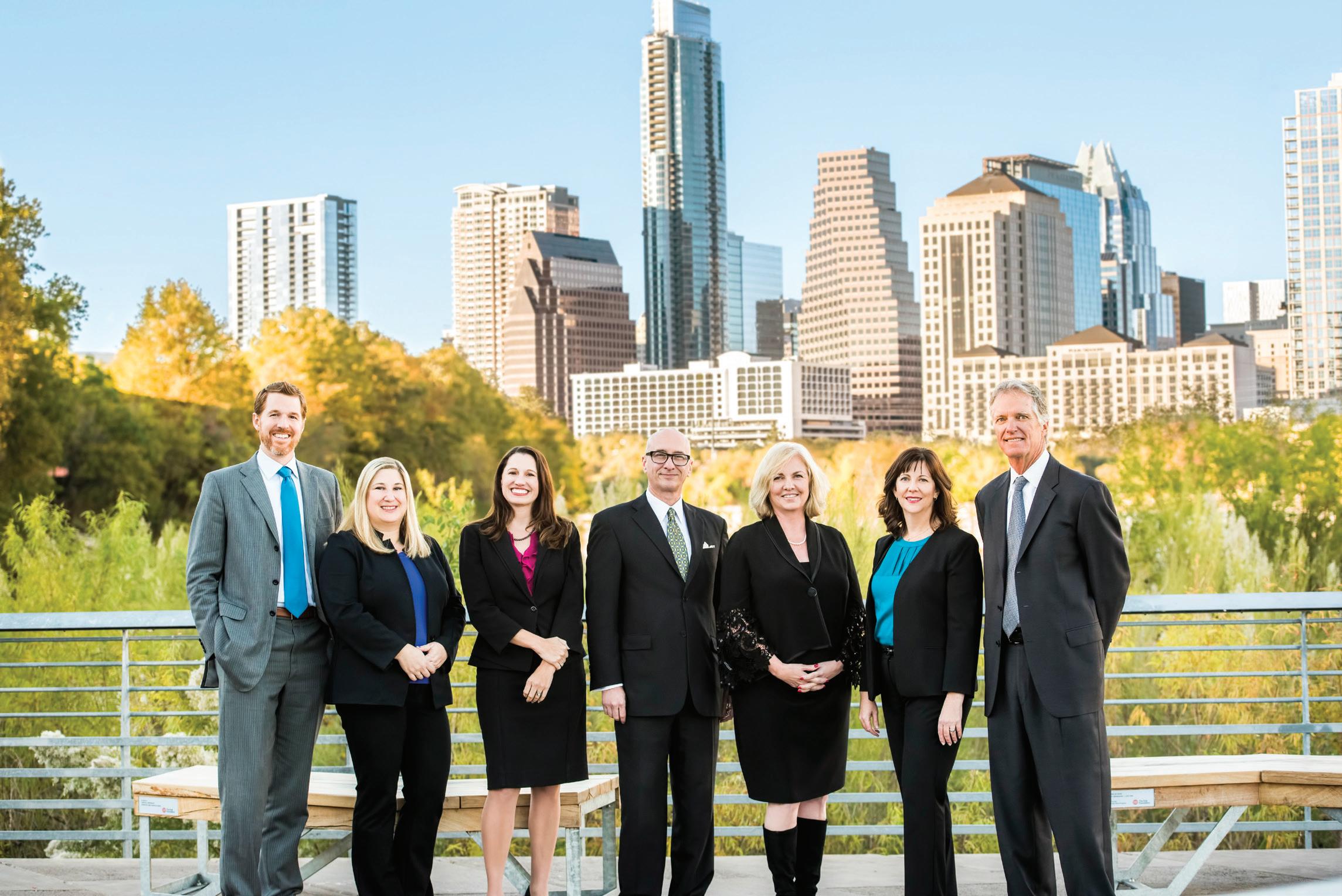

LAKESIDE MEDIATION CENTER
OCTOBER 2023 | AUSTINLAWYER 7
Arielle Rosvall, Coleen Kinsler
KUDOS
NEW MEMBERS
The Austin Bar welcomes the following new members:
Joseph Barrientos
Tori Bell
Kourtney Benton
Steve Bird
Lauren Bradley
Amanda Brenner
Sarah Chaudhary
Alec Comerford
Kay Crisp
Rachel Cross
Alan Díaz-Santana
Lucy Elkins
Hans Fitting
Nikita Glass
Lori Gruver
Mackenzie Holst
Peyton Howe
Erik Huhn

Ellen Kassis
Connor Kilgallen
Emma Kypuros
Kaitlyn Lovingfoss
Kristina Loza-Garcia
Luis Martin Del Campo
Maxwell Massey
Caitlin McGregor
Lauren Mistretta
Emily Nguyen
Brian Patrick
Laura Politi
Rowan Pruitt
Tariq Rajei
Lucero Sauceda
Courtney Snyder
Erika Solar-Lezama
Thomas Stanton
Ryan Turner
Justin Wells
Christopher Young
Congratulations to Mitchell F. Boomer, who was recognized by The Best Lawyers in America in the Litigation – Labor and Employment Category. Boomer is the Austin Office Managing Principal at Jackson Lewis PC.

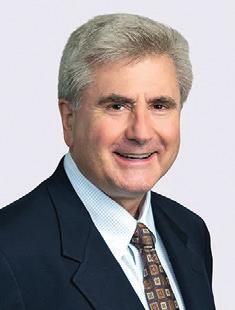
Congratulations to James Matthew Dow, who was recently named a Texas Super Lawyer in the area of Business Litigation. Dow has held this distinction since 2006. Dow is the managing partner of Jackson Walker’s Austin office and has represented clients in business and employment litigation in more than 40 trials and arbitrations, including 20 jury trials.


Congratulations to Jason T. Hill, who has joined Allensworth as of-counsel to assist the firm’s expansion into water-related construction and permitting issues. Hill also manages J.T. Hill PLLC, focusing on water rights and
transactions, water quality permitting, water supply contracting, and litigation.

Congratulations to Jonathan E. Lass of Jackson Walker’s Austin office, who received the Adjunct Professor of the Year Award from the Student Bar Association of The University of Texas School of Law for the second year in a row.
Congratulations to Mary Evelyn McNamara, who received the 2023 Joseph W. McKnight Award for Best Family Law CLE Article from the Family Law Section of the State Bar of Texas.
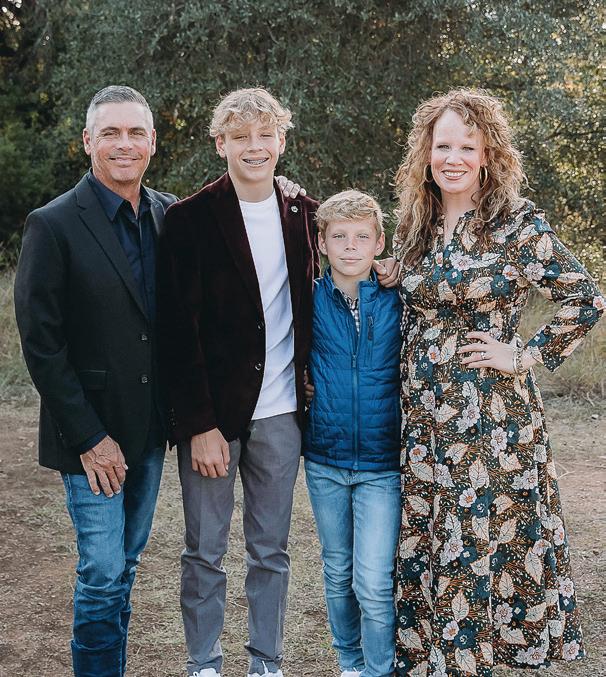
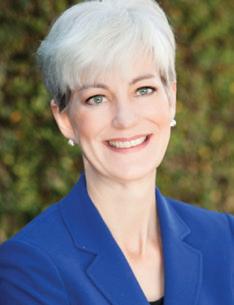
Congratulations to Nikelle Meade, who was included in Austin Business Journal’s inaugural Power Players list, which recognizes individuals who have notable influence in their industry. Meade is a partner in Husch Blackwell’s Austin office and is a member of the firm’s Real Estate,
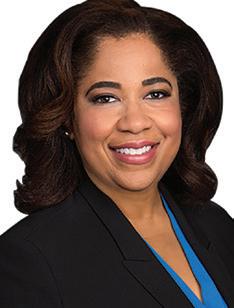
Development & Construction industry group.
Congratulations to Tim Taylor, who was included in Austin Business Journal’s inaugural Power Players list. Taylor is a partner in Jackson Walker’s Austin office, representing financial institutions in a wide variety of lending transactions, but with a focus on real estate loans. AL
TOP (L-R): Boomer, Dow, Hill, Lass. BOTTOM (L-R): McNamara, Meade, Taylor.
Chris Andre New Vehicle Leasing / Pre-Owned Sales Domestics / Imports / Exotics Busy Schedule? Call me. Home or Office Viewing and Delivery Any Make. Any Model. Email | chris@appleleasing.com Phone | 512.653.3718 8 AUSTINLAWYER | OCTOBER 2023

Readability of Briefs Two Empirical Studies
BY WAYNE SCHIESS, TEXAS LAW | LEGALWRITING.NET

This column discusses two studies of appellate-brief writing that reached different conclusions and call for different explanations.
The first study scored nearly every brief submitted to the U.S. Supreme Court from 1969 to 2004 using four readability-assessment tools,1 two of which are described here.
The Flesch Reading Ease Scale uses sentence and word length to assess readability and assigns a score: Zero to 30 is “very difficult,” while 90 to 100 is “very easy,” and 60 is “plain English.”2
The Flesch-Kincaid Grade Level reports the number of years of formal education a reader needs in order to understand the text: 12 means a high-school graduate, 16 means a college graduate, and 19 means a law-school graduate.
For the period assessed, U.S. Supreme Court briefs averaged a Flesch Reading Ease score of 35 (difficult) and a Flesch-Kincaid Grade Level of 14 (sophomore in college).
Also, during that period, the grade level of the Facts sections moved from 15 to 12—becoming simpler. The grade level of the Argument section moved from 14 to 13—again, becoming simpler. And the readability score for the Argument section moved from 33 to 39—becoming more readable.3
What does this trend to simpler, more readable writing mean? Does it represent “the dumbing down of America”? Should we conclude that even Supreme Court advocates are incapable of writing complex, sophisticated prose?
No. Given the high caliber of attorneys writing briefs to the Supreme Court, I draw a different conclusion. These advocates understand that a readable brief, written as simply as possible given the complex subject matter, will
be more persuasive and engaging. It’s a good reminder for all legal writers.
The second study assessed briefs to the New York Court of Appeals from 1969 to 2008, and it relied on the tools already described: the Flesch Reading Ease Scale and the Flesch-Kincaid Grade Level.4 But this study didn’t have good news.
Based on scores by decade (1969-78, 1979-88, 1989-98, 1999-2008), the average Flesch Kincaid Grade level moved from 13 to 14—becoming less simple, and the average Flesch Reading Ease Score moved from 42 to 32— becoming less readable.5 The author was dismayed by these results in part because the time period, 1969-2008, roughly corresponds with a trend toward more and better legal-writing instruction in U.S. law schools.
Does this mean that legal-writing teachers, like me, aren’t making writing better—we’re making it worse? I took that pretty hard.
I wanted a different explanation, and I think I found one.
Granted, when viewing the numbers by decade, you see a trend to less simple, less readable legal writing. But if you view the numbers by year, you see that there probably isn’t a clear trend.
In fact, when viewed by year, the numbers fluctuate widely and almost annually. For example, the grade level for 1990 is 8, but for 1996 it’s 16. From legal writing an 8th grader could understand to writing that would require a college degree—in six years? It’s hard to explain.6
The readability scores rise and fall in a similar way. The score for 1981 is 52 (a high score for legal writing) but drops to 40 (difficult) in 1982. It then moves back up to 52 in 1990 but drops to 30 (very difficult) by 1993.7
In fact, the author’s charts that report scores by year look like upand-down zig zags without (to me) a clearly discernible trend.
So, here’s my explanation:
Briefs to the U.S. Supreme Court are produced by a fairly small and highly sophisticated group of appellate attorneys, and their writing gets better—simpler and more readable—over time. Briefs to the New York Court of Appeals come from a wider range of attorneys with a wider range of experience and skill, and their writing shows no definite pattern of improvement. Now I feel better. AL
FOOTNOTES
1 Brady Coleman & Quy Phung, The Language of Supreme Court Briefs: A Large-Scale Quantitative Investigation 11 J. App. Prac. & Process 75, 76 (2010).
2 Rudolf Flesch, How to Write Plain English 25 (1979).
3 Coleman & Phung at 98, 99 (numbers rounded).
4 Ian Gallacher, When Numbers Get Serious: A Study of Plain English Usage in Briefs Filed Before the New York Court of Appeals, 46 Suffolk U.L. Rev. 451 (2013).
5 Id. at 465, 472.
6 Id. at 472.
7 Id. at 466
OPENING STATEMENT 10 AUSTINLAWYER | OCTOBER 2023

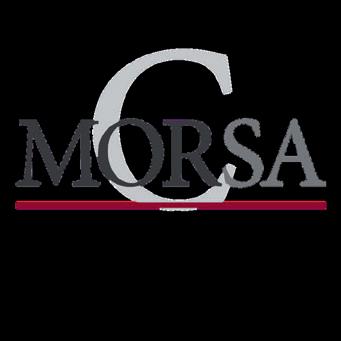



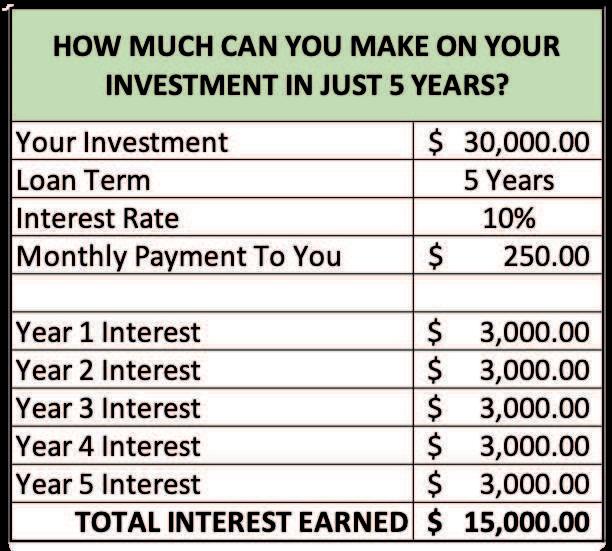
OCTOBER 2023 | AUSTINLAWYER 11 We offer investment opportunities that earn PASSIVE income secured by real estate. YOU WORK HARD FOR YOUR MONEY... LET YOUR MONEY WORK HARD FOR YOU! CALL US TODAY to secure 10% INTERE$T 210-862-8687 dswope@morsacapital.com Let us help you uncover hidden opportunities at EmbraceVolatility.com. Avoid Embrace volatility AUDIT / TAX / ADVISORY / CONSULTING Visit www.crowe.com/disclosure for more information about Crowe LLP, its subsidiaries, and Crowe Global. © 2023 Crowe LLP. MKTTX2401-007A
Get Ready for the Annual AYLA Tailgate!
Ah, football season in Austin, Texas—a time when the air gets a little crisper, flannel shirts make their annual appearance, and on weekends sprawling parking lots transform into bustling hubs of camaraderie, grill smoke, and a whole lot of team spirit. But let’s face it: We’re not just here for the sport; we’re here for the age-old American tradition of tailgating.
Tailgating didn’t kick off in a vacuum. Its roots are as murky as a cup of homemade chili, but most historians agree that it’s likely a descendant of pre-game feasts, popular in the times of the Romans and Greeks. Some say it began as a uniquely American innovation tied to the first college football games in the late 19th century. The debate may never be settled, but what’s certain is this: Tailgating has become a hallowed weekend ritual that rivals the game itself in importance.
The term “tailgating” is believed to have originated from the practice of fans gathering around the open tailgates of pickup trucks. These trucks became makeshift social hubs, where fans would sit, eat, and socialize before games. As the popularity of football grew, so did the phenomenon of tailgating. Fans started bringing grills, coolers, and outdoor furniture, transforming parking lots into lively pre-game parties.
The 1960s witnessed a turning point in tailgating culture, with colleges like the University of Mississippi taking the lead. The Grove, a picturesque area on the Ole Miss campus, became synonymous with elaborate tailgating setups. Tents, fine china, and gourmet spreads turned this tailgating spot into a must-visit destination. A common saying by “Grovers” is, “We may not win every game, but we’ve never lost a party.” The Grove’s tradition still thrives, illustrating how the practice of tailgating can become a hallmark of a university’s identity.
The history of The University of Texas football tailgates is also

marked by unique traditions that have become synonymous with Longhorn fandom. The “Hook ’Em” hand sign, a symbol of school pride and unity, is a ubiquitous gesture that represents the bond between fans and their team. The distinctive burnt orange color that symbolizes UT is proudly displayed through clothing, decorations, and tailgate setups. These traditions create a sense of identity and belonging that resonates deeply with attendees.
One of the most iconic aspects of UT football tailgating is Bevo Boulevard, introduced in 2018 as part of stadium renovations. Bevo Boulevard is a pre-game celebration area that captures the heart and spirit of Longhorn football. This vibrant space offers live music, interactive activities, and a variety of food and beverage options. Bevo Boulevard has become a focal point for fans to connect, celebrate, and immerse themselves in the rich culture of Longhorn football.
Of course, the COVID-19 pandemic presented an unprecedented challenge to the tradition of football tailgating. Concerns over public health and safety led to restrictions on large gatherings, forcing fans to adapt their tailgating practices. Virtual tailgates and watch parties emerged as alternatives, enabling fans to connect digitally while maintaining social distancing, proving that the essence of tailgating lies not just in the smoky aroma of barbecued ribs or the clinking of beer bottles. The true beauty lies in the sense of community it fosters.
In a time where our lives are increasingly digital and remote even post-pandemic restrictions, tailgating offers the inimitable experience of person-to-person connection. There are few other scenarios where people from different walks of life converge with a shared purpose—to cheer, eat, drink, and thrive in the collective euphoria of fandom. For young lawyers in Austin especially, it’s a chance to step out of the courtroom and
into a more relaxed environment, where the rules are unwritten but universally understood: Respect thy neighbor’s grill space, share thy ketchup freely, and never— ever—speak ill of the home team.
Of course, it’s not all fun and games. The annual AYLA Tailgate is also an opportunity to fundraise for the Holiday Program. The AYLA Holiday Program is an initiative that seeks to provide holiday gifts and support to children and families in need. This year, AYLA is partnering with the Texas Exes Tailgate to bring food, music, beverages, and the community together to support a worthy cause. Attending the AYLA Tailgate benefiting the Holiday Program adds an altruistic dimension to the traditional tailgating experience. It transforms the act of celebrating Longhorn football into an opportunity to make a positive impact in the community. Combining the excitement of game day with the knowledge that one’s presence is
contributing to a charitable cause creates a deeply fulfilling experience. Attendees can take pride in knowing that their enjoyment of the tailgate is directly benefiting children and families who may be facing challenges during the holiday season.
This year, the AYLA Tailgate will take place on Oct. 28, 2023, at the Travis Café Outdoor Concourse between 17th and 18th streets on Brazos. The Texas Exes Tailgate is sponsored by Bud Light, Karbach Brewing, Brown Distillery, Canteen Spirits, Titos, and Shiner, so there will be no shortage of beverages (both alcoholic and non-alcoholic), and there will be plenty of food to go around. This is also a family-friendly event, so power up those strollers and come show off your babies, fur children, partners, cousins, or whoever else is up for having a great time while supporting a worthy cause.
Until then, may your grills stay hot and your beers stay cold. AL
UPCOMING EVENTS
TUESDAY, OCT. 10
AYLA Members CLE
Helpful Tips and Common Mistakes –Travis County Central Docket
CFCF 12 - 1 p.m.
Speaker: Warren Vavra
THURSDAY, OCT. 19
Docket Call Star Bar
600 W. 6th St. 5:30 - 7 p.m.
Sponsored by Floyd Real Estate & Happy Mortgage, a Division of Centennial Bank
AUSTIN YOUNG LAWYERS ASSOCIATION
12 AUSTINLAWYER | OCTOBER 2023
Invest in Your Network: Attend a “Docket Call” Happy Hour!



Are you looking to expand your network? Or just looking for lawyer friends to help you celebrate and commiserate? Make the commitment to attend AYLA’s monthly happy hours, appropriately called “Docket Calls.”
One of AYLA’s most popular member benefits, Docket Call is a monthly gathering of AYLA members, with free drinks (thanks to our sponsors) and great conversation. Docket Calls are always well attended by AYLA’s leadership, so it is also a fantastic opportunity to get to know the officers and directors and find ways to get more involved.
If you are nervous about attending alone, do not worry! There are so many friendly members at the happy hours who are there for the same reason as you: to meet people! Members have met lifelong friends, found business and job opportunities, and even found their future spouses at Docket Call!
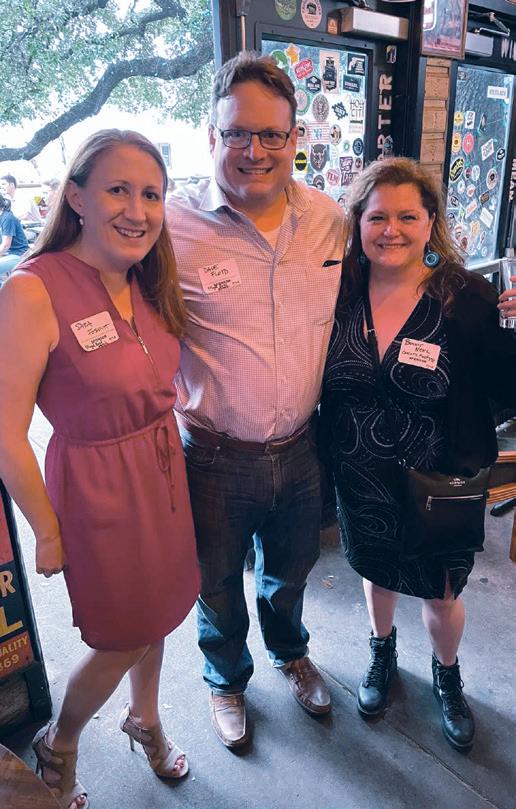
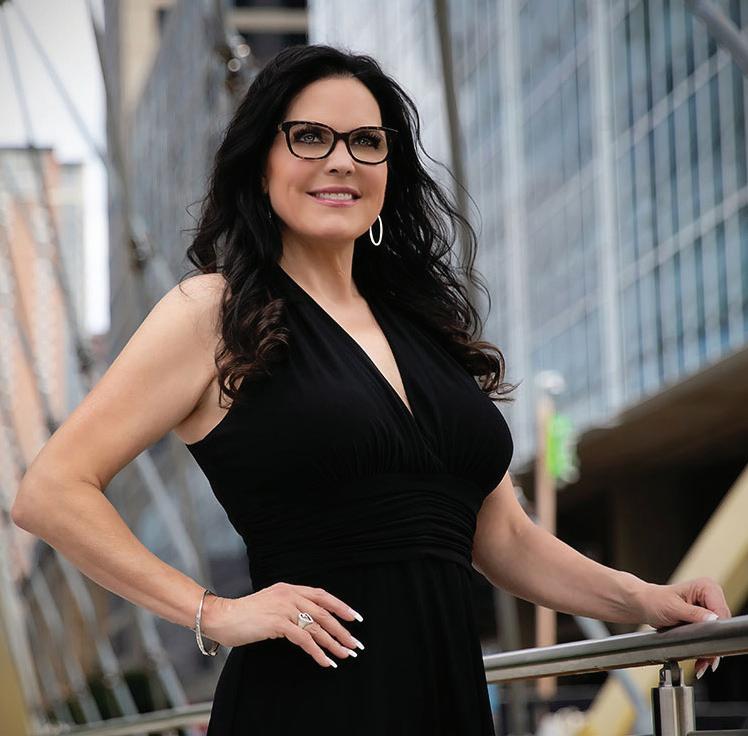
Docket Call is free for any current AYLA member. If you have friends who are not yet members, they can join online or at the door. If you have ideas for Docket Call sponsors or locations, please contact AYLA Executive Director Debbie Kelly (debbie@austinbar. org) or Docket Call Committee Chair Katie Fillmore (KAFillmore@duanemorris.com).


For more details on upcoming Docket Call events and locations, visit www.ayla.org. AL
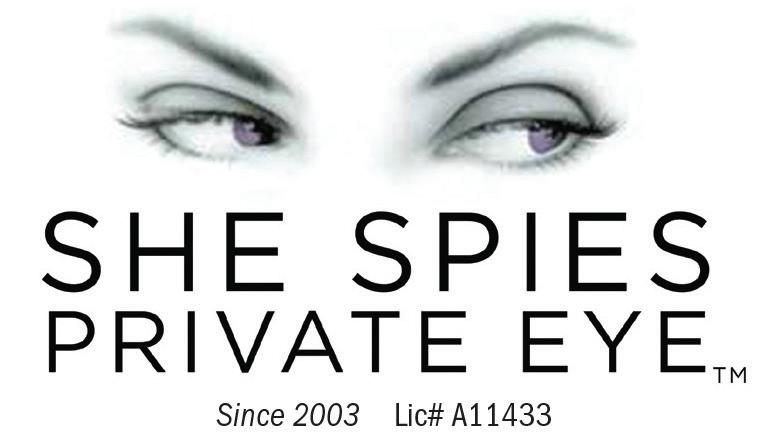
Upcoming Docket Calls Mark your calendars!
THURSDAY, OCTOBER 19, 5:30 – 7 PM


Sponsored by Floyd Real Estate & Happy Mortgage, A Division of Centennial Bank

Location: Star Bar
THURSDAY, NOVEMBER 16, 5:30 – 7 PM
Sponsored by Consilio Location: TBD
THURSDAY, DECEMBER 14, 5:30 – 7:30 PM Holiday Party
Location: Hilgers House
THURSDAY, JANUARY 18, 5:30 – 7 PM
Sponsored by Bettac Advocacy and Mediation, PLLC Location: Fast

AUSTIN YOUNG LAWYERS ASSOCIATION
Divorce and Child Custody Surveillance ~ Undercover Background Checks Computer & Phone Forensics Corporate Investigations Expert Testimony and more Offices in Austin, Round Rock and Dallas STRICTLY CONFIDENTIAL Featured in Forbes Magazine Anji Maddox OCTOBER 2023 | AUSTINLAWYER 13
“Information is power, the not knowing is devastating.”
TOP: AYLA at a Docket Call. BOTTOM: (L-R) Kennon Wooten, Drew Harris, and Sherine Thomas at a Docket Call.
Friends Beer Co.
The following are summaries of opinions issued by the Fifth Circuit in August 2023. The summaries are overviews of particular aspects of the opinions; please review the entire opinions.
ADMINISTRATIVE LAW: Petitioners did not need to be “aggrieved parties” to challenge grant of license as ultra vires; Nuclear Regulatory Commission lacked authority to license private storage of nuclear waste.
Texas v. Nuclear Regulatory Commission, No. 21-60743, 2023 WL 5498874 (5th Cir. Aug. 25, 2023).
Congress mandated that the Department of Energy find and develop a geologic repository for nuclear waste. DOE selected Yucca Mountain in Nevada as the location but since then, the effort has stalled.
Searching for an alternative, the Nuclear Regulatory Commission set out to license “interim” storage facilities for nuclear waste. A private company then applied for an interim-storage license for a facility in West Texas.
Fearing the interim facility would become permanent, an oil and gas company (Fasken) and the State of Texas opposed the license. Texas also passed a law banning radioactive waste disposal.
The NRC granted the license, and Texas and Fasken petitioned

for review. Texas argued that the Atomic Energy Act does not confer authority on the NRC to license private storage facilities. Fasken argued that the NRC additionally violated the National Environmental Policy Act.
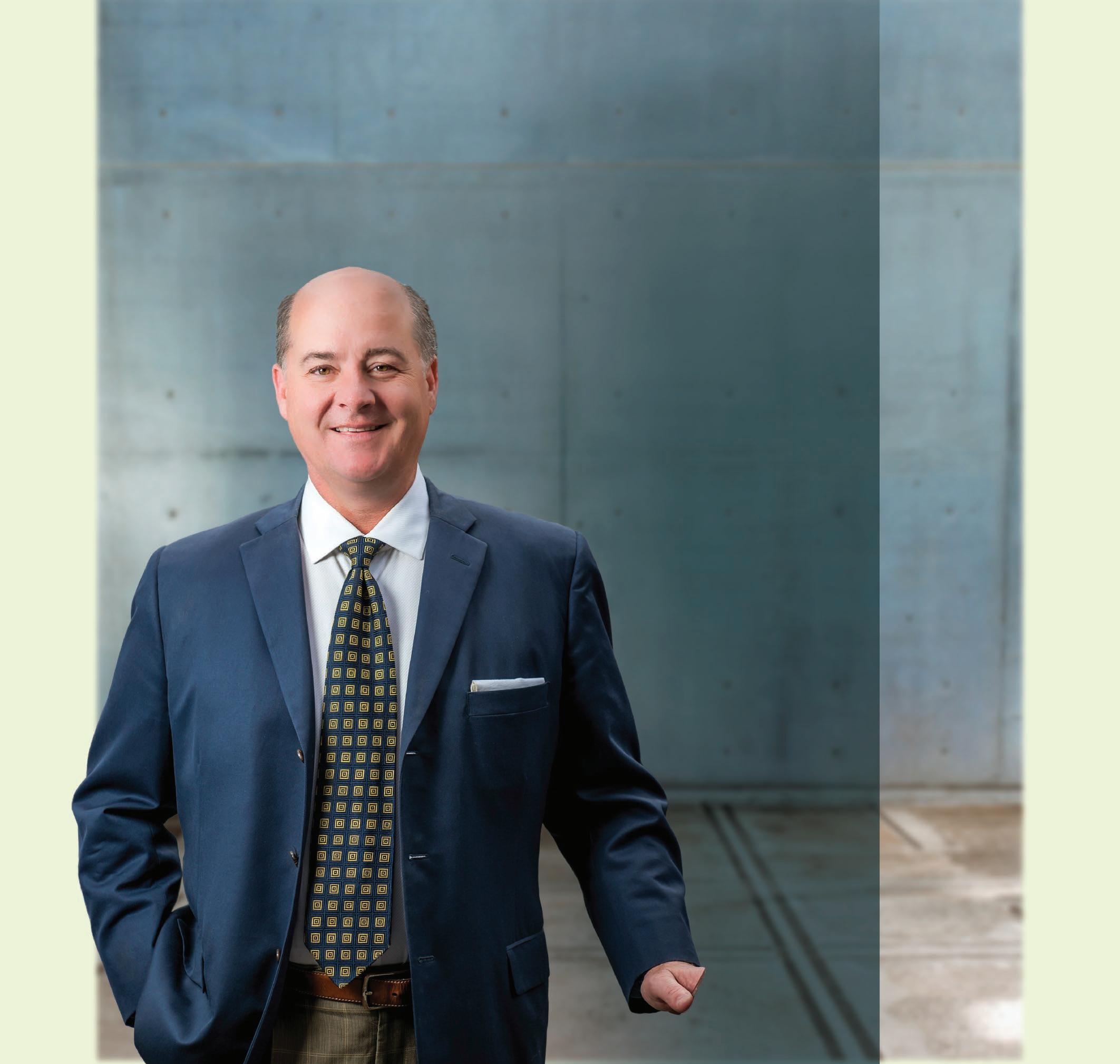
The Fifth Circuit set aside the license.
First, the court found that Texas and Fasken have constitutional standing: Texas because the license conflicts with and preempts Texas law, Fasken because of its proximity to the proposed facility.
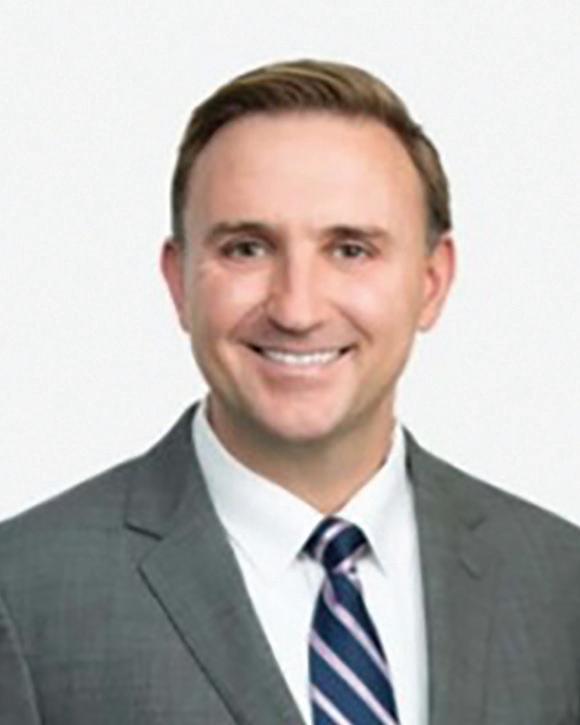
Second, the court concluded that both have statutory standing under the Hobbs Act, which governs review of NRC orders. Case law from other jurisdictions suggests that Texas and Fasken lack traditional aggrieved-party status because they did not participate in the licensing procedure. But the court relied on its own precedent providing an ultra vires exception to the traditional requirement. The exception applies to a party challenging an action as exceeding the NRC’s authority. Both Texas and Fasken satisfied the exception.
Finally, the court held the NRC lacks authority to license a private facility. The court’s holding relied on the major-questions doctrine, the comprehensive nature of the statutory scheme governing nu clear waste storage, and the lack of any express statutory authori ty for the NRC to license private storage facilities.
TRADEMARK INFRINGE
MENT; INJUNCTIONS: Service of process not required for pre liminary injunction; trademarked aesthetic stylings were not im properly “functional.”
Whirlpool Corp. v. Shenzhen Sanlinda Electrical Tech. Co., No. 22-40376, 2023 WL 5498069 (5th Cir. Aug. 25, 2023).
Shenzhen, a China-based man ufacturer, recently launched a stand mixer for sale online that bears a strong resemblance to KitchenAid stand mixers manu factured and sold by Whirlpool.
Whirlpool filed a complaint against Shenzhen for claims of trademark infringement and di lution, trade dress infringement,
and unfair competition under federal and state law. That same day, Whirlpool filed a motion for a preliminary injunction prohibiting Shenzhen from selling, distributing, advertising, or promoting the allegedly infringing mixers.
At the preliminary injunction hearing, counsel for Shenzhen appeared and argued that the injunctive relief was improper because it had not been served, Whirlpool’s trademarks are invalid because they are functional, and there is no likelihood of confusion. The district court entered a preliminary injunction prohibiting Shenzhen from distributing its mixers and required Shenzhen to recall mixers already distributed. Shenzhen appealed.
The Fifth Circuit affirmed. The court first rejected Shenzhen’s service-of-process argument, holding that Federal Rule of Civil Procedure 65 requires only notice to an adverse party, not service of process.
Further, the court explained that its precedent requiring a district court to assure itself of the
al jurisdiction before issuing a preliminary injunction is limited to situations where a defendant argues personal jurisdiction could never exist. Here, by contrast, Shenzhen did not dispute that personal jurisdiction will exist upon proper service.
The court next rejected Shenzhen’s argument that Whirpool’s trademarks are invalid because they are functional. Applying the governing two-part test, the court first concluded that Shenzhen failed to show that the KitchenAid mixer’s exterior stylings are the reason it functions as a mixer. The court then found that competitor mixers with other design motifs are equally usable.
The court also declined to find clear error in the district court’s finding of a likelihood of confusion given the similarities in slopes and geometries of the mixers and the similar customer base.
Finally, the court concluded that the district court did not abuse its discretion in finding that the remaining factors favored
>
Jason LaFond is an Austin-based appellate litigator with significant experience before the Fifth Circuit. He is a Senior Counsel at Yetter Coleman LLP.
14 AUSTINLAWYER | OCTOBER 2023 FEDERAL CIVIL COURT UPDATE T E XA S S UP E R LAWY E RS ® B U SI NESS L ITI G ATI O N 2 0 1 6–P R E S EN T THE BE S T LAWY ER S IN AMERI CA® C O MM E R CIA L L ITIG ATI O N 2 0 1 2 –P R E S EN T THE BE S T LAWY ER S I N AMERI CA® R E A L ES TATE LAW 2 0 1 2 –P R E S EN T AUSTIN MONTHLY TOP ATTORNEY 2 0 1 9 –P R E S EN T Armbrust & Brown, PLLC 100 CO N G R ESS AV E., SUI T E 1 3 0 0 • AU S T IN, T EX AS 78 70 1 5 12 -4 3 5-2 3 0 0 • FA X 512 -4 3 5-2 3 6 0 M H AWKI N S @A BAU S TI N CO M MARK L . H AW K I N S MEDIATION & ADR SERVICES
The following are summaries of selected civil opinions issued by the Third Court of Appeals during August 2023. The summaries are overviews; please review the entire opinions. Subsequent histories are current as of Sept. 11, 2023.
FAMILY LAW: Court reverses appellate fees awarded after conclusion of appeal.

Morris v. Veilleux, No. 03-2200178-CV (Tex. App.—Austin Aug. 25, 2023, no pet. h.) (mem. op.).
Mother requested temporary orders requiring father to pay appellate attorney’s fees pending appeal. The trial court ordered that it would award fees after the court of appeals’ ruling. After remand, the trial court awarded mother ap-
pellate fees. The court of appeals observed that Texas Family Code § 109.001(a) permits a trial court to enter temporary orders during the pendency of an appeal, including payment of attorney fees. A trial court retains jurisdiction to order fees under § 109.001 until the 60th day after the notice of appeal is filed.
Here, the trial court ordered fees more than a year after father filed his notice of appeal. Thus, the trial court lacked jurisdiction to award fees. The court vacated the fee award and affirmed.
TRIAL PROCEDURE: Timely objection to assignment of an associate judge preserved error.

Kemp v. Kemp, No. 03-2200666-CV (Tex. App.—Austin Aug. 29, 2023, no pet. h.) (mem. op.).
In her answer, wife objected to the assignment of the case to an associate judge. Wife’s attorney withdrew, and the case was tried before an associate judge. Wife did not appear for trial. In the restricted appeal, the court of appeals concluded that Family Code § 201.005(c) provides that if a party timely objects, the referring court shall hear the trial on the merits. There is no discretion to overrule the objection. Accordingly, there was error on the face of the record. The court rejected husband’s argument that wife had to re-urge her objection at trial to preserve error to pursue a restricted appeal. Restricted appeals protect parties who could not object because they were not present at the trial. The court reversed and remanded.
RESTRICTED APPEAL: Court reverses default where LLC named in judgment was not a party to the contract.
AVS Builders, LLC. v. Galpin, No. 03-22-00457-CV (Tex. App.— Austin Aug. 9, 2023, no pet. h.) (mem. op.).
Galpin signed a construction contract with “Armando Vela (AVS Builders).” After problems developed, Galpin sued Armando Vela, individually and d/b/a AVS Builders, LLC. At a hearing where no defendant appeared, the trial court signed a default judgment against AVS Builders, LLC and Vela. The LLC contended that the trial court erred because the LLC was not a party to the contract. The court of appeals noted that if attachments to a petition conflict with the petition’s allegation, the attachments govern, and the pleadings will not support a default judgment. The contract attached to the petition listed Armando Vela (AVS Builders) as defendants, not the LLC. The court held that because the contract did not list the LLC as a party, it did not support the default judgment. The court reversed and remanded.
MANDAMUS: Court grants relief where trial court ordered production of attorney’s file.
In re Hyde Park Baptist Church, No. 03-23-00049-CV (Tex. App.— Austin Aug. 22, 2023, orig. proceeding) (mem. op.).
Former church member Burciaga sued church to recover donations, claiming a church employ-
ee, Jennings, failed to honor an oral agreement on how the funds would be used. Burciaga sought production of church’s attorney’s file developed in its investigation of Jennings in an unrelated matter. After initially denying the request, the trial court, on reconsideration, ordered production. The court of appeals held that church established that it hired an attorney in anticipation of litigation and thus, the attorney’s file was privileged. The court rejected Burciaga’s argument that church waived privilege when it voluntarily disclosed the attorney’s investigation memo, holding that the production waives privilege only as to the specific document. The court granted mandamus relief. AL
>
OCTOBER 2023 | AUSTINLAWYER 15 THIRD COURT OF APPEALS CIVIL UPDATE
Laurie Ratliff is a former staff attorney for the Third Court of Appeals. She is board-certified in civil appellate law by the Texas Board of Legal Specialization and owner of Laurie Ratliff LLC.
Zak Hall is a staff attorney for the Third Court of Appeals. The summary below represents the views of the author alone and does not reflect the views of the court or any of the individual Justices on the court.
The following are summaries of selected criminal opinions issued by the Third Court of Appeals from April 2023. The summaries are overviews; please review the entire opinions. The subsequent histories are current as of Sept. 5, 2023.
EVIDENTIARY SUFFICIENCY
– DRUG POSSESSION: Evidence was sufficient to prove that defendant possessed methamphetamine.
Sumrall v. State, No. 03-2100402-CR (Tex. App.—Austin Apr. 6, 2023, no pet.) (mem. op., not designated for publication).
Officers initiated a traffic stop of a vehicle in which Sumrall was sitting in the front passenger seat. The officers searched the vehicle and found methamphetamine in a zippered canvas bag on the driver side of the vehicle and in a Ziploc bag within a plastic Walmart shopping bag on the floorboard of the passenger side of the vehicle.
Following a bench trial, Sumrall was found guilty of possession of a controlled substance in an amount less than one gram. On appeal, he argued that the evidence was insufficient to support his conviction. Specifically, he claimed that the evidence was insufficient to prove the requisite culpable mental state, i.e., that he knowingly or intentionally
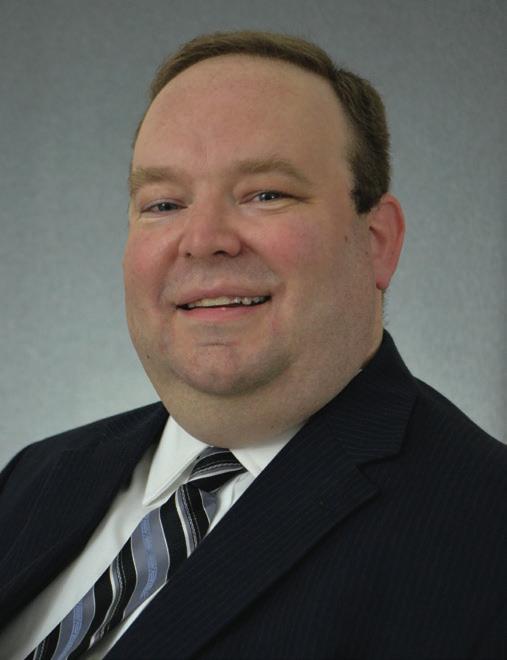
possessed the methamphetamine found inside the vehicle.
The appellate court disagreed, observing that there were several factors linking Sumrall to the contraband, including: The evidence showed that a “drug user” amount of methamphetamine was on the vehicle’s passenger side right below where Sumrall was sitting when the officer initiated the traffic stop; the plastic shopping bag containing methamphetamine also contained groceries and mail addressed to Sumrall; a DPS officer testified that it looked like the methamphetamine within the shopping bag had been “purposefully concealed,” that Sumrall was showing signs of being under the influence of a stimulant, that he attempted to exit the vehicle when the officer initially approached, which is “usually an indication that they’re trying to distance themselves from the vehicle,” and that there was a “dealer” amount of methamphetamine on the driver side of the vehicle, which suggested that the driver of the vehicle had sold meth to Sumrall.
Based on the combined and cumulative force of this and other evidence, the appellate court concluded that the trial court reasonably could have found that there were “sufficient independent facts and circumstances justifying” an inference that Sumrall “intentionally or knowingly possessed” the methamphetamine.

EVIDENTIARY SUFFICIENCY
– SELF DEFENSE: Evidence was sufficient to support rejection of defendant’s self-defense claim in murder trial.
Boyd v. State, No. 03-22-00255CR (Tex. App.—Austin Apr. 21, 2023, no pet.) (mem. op., not designated for publication).
In February 2020, Boyd was living in a camp off a highway in south Austin, along with several other individuals. One of those individuals, Shawn Eaton, was found dead at the camp. The police noticed that one of Eaton’s hands was on top of a martial arts weapon called a sai, which is a type of dagger.


During their investigation, the
police learned that Eaton had been shot in the chest and discovered a .32 caliber cartridge near Eaton’s feet and live rounds of ammunition of the same caliber inside Boyd’s tent. Boyd was charged with murdering Easton.
During trial, Boyd admitted that he shot Eaton but claimed he did so in self-defense. He testified that Eaton was violent with his girlfriend when he lived at the camp, that Eaton was asked to leave the camp, that he bought Eaton’s tent when Eaton left, that Eaton left some of his property behind, and that Eaton returned to the camp multiple times after being asked to leave.
Regarding Eaton’s death, Boyd said that he was outside his tent, that he noticed Eaton moving quickly and purposefully toward him, that Eaton looked mad, that Eaton had an unknown metal object in his hand, and that Eaton threatened to kill him. Boyd told Eaton to get back, but Eaton continued to move toward him. Boyd further testified that he was afraid that Eaton was going to stab him
with the metal object, that he had no opportunity to do anything other than defend himself, and that he shot Eaton.
The trial court rejected Boyd’s self-defense claim and found him guilty of murder. The appellate court concluded that the evidence, when viewed in the light most favorable to the verdict, was sufficient to support the finding. Although there was evidence that supported Boyd’s claim of self-defense, there was other evidence that did not.
Eaton’s weapon “looked like a toy” and might not have been capable of causing serious bodily injury or death. Additionally, other witnesses testified that Eaton had not been violent; there was evidence that Boyd was under the influence of drugs at the time of the shooting; and Boyd’s actions following the shooting, including failing to report it, suggested a consciousness of guilt. AL
ONLINE PARALEGAL CERTIFICATE PROGRAMS
Next instructor-led course begins 1/20, or start the self-paced option today. Attend
success
UT Austin’s online paralegal
Secure your team’s
with
training.
a free information session, or visit: professionaled.utexas.edu/paralegal
16 AUSTINLAWYER | OCTOBER 2023 THIRD COURT OF APPEALS CRIMINAL UPDATE
>

Complexity is our specialty. SLACKDAVIS.COM Commercial Airline | Private & Charter Planes | Helicopter | Air Ambulance The law firm of Slack Davis Sanger® specializes in navigating and winning the challenging aviation cases that others can’t. With three decades of experience and a team of highly-regarded lawyers consisting of licensed pilots and a former NASA® engineer, we have the technical and legal expertise to outwork, out-think, and out-resource any opposition.
Decriminalizing Mental Health in Travis County: Part 3
This is the third in a series of eight articles about the Travis County Forensic Mental Health Project.

The Travis County Forensic Mental Health Project delivered its recommendations to the Travis County Commissioners in March 2023. The goal of these recommendations is to provide solutions other than jail to address mental health and substance abuse disorders in the county.
Recommendation #2
The report’s second recommendation is the construction of a Travis County diversion center “designed to co-locate functions and services to create a platform to support individuals in the mental health/criminal/legal intersection to avoid jail whenever possible and receive mental health disorder care, while also supporting community safety.”
This diversion center would include clinical evaluations; psychiatric and medical treatment, including substance abuse treatment; legal support when required; and community reentry services.
“Integrating legal support within the center could create collaborative approaches for people whose mental health disorder led to being detained by the police and charges are not dismissed,” the recommendation document says.
The biggest challenge for this recommendation, the document states, is estimating the optimal size to meet current and future need. This challenge results from “inadequate records and information to identify the number of individuals within a specified time who might be referred into a diversion center.”
The Project ultimately arrived at a current need of up to 70 beds, while in the next decade this amount would need to increase to up to 88 beds.
“We started with the average number of people released from jail monthly—about 400 people,” the document explains. “We assumed that 40 percent of individuals receive mental health services while in jail, resulting in 160 a month with a mental health disorder need. Not all will qualify for diversion, resulting in a ‘best-estimate’ need to ‘divert’ 100 people per month.”
The Project estimated that approximately 64 individuals would qualify for diversion monthly. They based their calculations on “fragmented” Travis County data, identifying 2,231 individuals with an identified mental health flag in the Travis County Central Booking and jail database. Of these, 106 people, each with between three and 89 arrests, “typified people cycling in and out of jail.” Seventy-five percent of these arrests were for misdemeanors. Of all the identified misdemeanors, criminal trespassing represented the largest amount of arrests, at 55 percent.
“Had alternative interventions been in place, many of these individuals might have received care for their mental health disorder in a therapeutic and less restrictive setting than jail,” the document says.
Ultimately, the Project estimates the current need for the amount of beds at the proposed diversion center would range between 32 and 70. Over the next 10 years, this range would increase by 25 percent, to between 40 and 88 beds, presuming increases in county population are similar to the last decade.
“Critical to these assumptions is that the length of stay is managed at two weeks or less, requiring sufficient investment in outpatient care and housing options to provide an exit from the center,” the document says. “If the center is established without adequate exit opportunities, it will quickly devolve into, effectively, a jail or state hospital, or it will simply be releasing people back to the streets
to cycle back through the system.”
The Project did not provide an estimated timeframe on the construction of a diversion center, saying it would be “dependent on court’s direction.” The Project did estimate the construction cost of a 32-bed facility at $30.7 million, with an annual budget of $5.4 million.
Recognizing the high cost, the Project recommended repurposing an existing facility while the new diversion center is being built. The Project suggested both Travis County’s Judge Guy Herman Center for Mental Health Crisis Care and the Travis County Adult Probation SMART program’s facility.
“Both would provide time to strategically design, implement, and build a new center while piloting a program and allow operational testing and improvements throughout the system,” the document says.
While the Project did not provide any recommendations on where funding for the construction of a new diversion center would come from, it did offer a recommendation on funding the annual operating budget.
Under current law, treatment provided to adults in an institution for mental diseases with more than 16 beds is not reimbursable under Medicaid. This payment prohibition is known as the Medicaid Institution for Mental Diseases (“IMD”) exclusion.1
“If Medicaid revenue is needed as a substantial support of operating expenses … Travis County might consider building two to three independent diversion centers with 16-bed capacity,” the document says. “This approach might allow easier expansion with county growth over time, although almost certainly is less cost-efficient to operate.”
The Project recommended not locking into one option during the planning and design phases.
“A key aspect of a diversion center is providing enough time for an individual to stabilize and receive referrals for connections in the community,” the document says. “There are several legal mechanisms used by other diversion centers to hold individuals, who may not want to remain for the duration needed, while this work is completed.”
The first of these mechanisms, used by a diversion center in Nashville, Tenn., is to file charges against the person and then dismiss or expunge the records once treatment is completed.
“A second mechanism is to use existing emergency detention laws to their fullest extent or create new parameters which allow for involuntary treatment for a longer period of time,” the document says, adding that “the current Texas statute allows for up to 30 days.”
Currently, Section 574.034 of the Texas Health & Safety Code says,
18 AUSTINLAWYER | OCTOBER 2023
Diversion Center Comparison
Nashville, TN
60 beds (30 men/30 women)
N/A – still only operating at 50%
Harris County, TX
12 recliners/24 beds
125 people/month
Miami-Dade County, FL
Tucson, AZ
34 recliners/15 sub-acute inpatient beds
208 beds
750 people/month (600 assessment and triage; 150 inpatient/residential)
800 people/month
Pre- or post-arrest
Voluntary or involuntary
Stand-alone or connected to jail
Distance from jail
Run by
Cost to build or renovate
Annual operating budget
Legal grounds for holding
Post-arrest
Voluntary but locked
Connected to Central Booking
Attached, but different address
Sheriff’s Office, with contracted medical and mental health providers (partnership with local stakeholders)
$8 million (as part of new jail cost)
$2.6 million
Charges filed and pending until program completion, usually 30 days. Once completed, record expunged along with arrest information.
Pre-arrest
Voluntary
Stand-alone
A few miles
Local mental health authority with DA, Sheriff’s office, police department, etc.
Existing building with minimal renovations
$5 million
N/A – voluntary only
Travis County Forensic Mental Health Project3 p. 21.
“An order for temporary inpatient mental health services shall provide for a period of treatment not to exceed 45 days, except that the order may specify a period not to exceed 90 days if the judge finds that the longer period is necessary.”3
The document says a diversion center in Harris County treats 125 people a month on a voluntary basis, including in lieu of additional legal processes. These individuals are free to leave at any time.
Other features of the Harris County diversion center include:
• Has 12 recliners/24 beds
• Provides pre-arrest support
• Provides only voluntary treatment
• Is a stand-alone facility not connected to a jail
• Is a few miles from the nearest jail
• Is run by a local mental health authority and a committee made up of representatives of the Harris Center for Mental Health and Intellectual/ Developmental Disorders, the Harris County District Attorney’s Office, the Harris County Sheriff’s Office,
the Harris County Budget Office, the Harris County Public Defender’s Office, the Harris County Community Supervision and Corrections Department, and the Houston Police Department
• Was established within an existing building with minimal renovations
• Costs $5 million annually to operate
Contrasting this is a diversion center in Tucson, Ariz.: “Tucson had success in building relationships with individuals originally brought in involuntarily and then transitioning them to voluntary treatment, which is commonly done in many private psychiatric facilities,” the document says.
The Project recommends the proposed Travis County diversion center offer both pre-arrest and post-arrest support.
“Doing so provides a maximum number of exit points from the legal system into better community-supported treatment and residential opportunities,” the document says.
No ideal diversion-center mod-
Both (approx. 60% pre-arrest, 40% post-arrest)
Voluntary; however, offers locked crisis stabilisation unit
Stand-alone
10 miles
TBD (likely county-managed building subleased to nonprofit)
$51.1 million renovation
Approx. $30 million ($17 million from Medicaid)
Florida Baker Act and Marchman Act expanded involuntary detention parameters for pre-arrest diversion; post-arrest, charges pending until program completion.
el has been established, the document notes. A successful and efficient system of care should be anchored in, but not exclusively reliant upon, a diversion center.
“Most successes for counties with diversion centers come not from the center itself, but from the implementation of wide-ranging, widely available mental health treatment and programs,” the document says.
A diversion center is currently being built in Miami-Dade County, Fla. Despite this, crisis intervention teams (CITs) decreased arrest rates and the number of individuals referred to emergency departments.
“The Miami-Dade CIT was able to divert enough arrests that they successfully closed one of their jails, saving roughly $12 million annually in taxpayer dollars,” the document says. “Between 2010-2018, their CIT had an arrest rate of .002 percent, decreasing the inmate population by 39 percent. They estimate this resulted in roughly 109,704 fewer inmate jail days annually, which is a cost avoidance of $29 million per year.” AL
Pre-arrest
Both (locked, but accepts voluntary and involuntary)
Stand-alone
5 miles
Connections Health Solutions (contract from local mental health authority)
$15 million via county bond funds; leased from LMHA for $1/year
$20-$25 million
Utilizes civil commitment laws for involuntary patients; general individuals with criminal charges are not brought to them. 60%-70% conversion rate from involuntary to voluntary treatment.
FOOTNOTES
1 “Medicaid Emergency Psychiatric Demonstration: Demonstration Design and Solicitation.” Centers for Medicare & Medicaid Services. Accessed May 25, 2023. https://innovation.cms.gov/ files/x/medicaidemerpsy_solicitation. pdf
2 Health And Safety Code Title 7. Mental Health And Intellectual Disability Subtitle C. Texas Mental Health Code Chapter 574. Court-Ordered Mental Health Services Subchapter C. Proceedings For Court-Ordered Mental Health Services Sec. 574.034 (G)
3 https://civicclerk.blob.core. windows.net/stream/TRAVISCOT/956f1347-2fce-43cb-b1eeba892db89ae7.pdf?sv=2021-1004&st=2023-03-10T20%3A32% 3A33Z&se=2024-03-10T20%3A 37%3A33Z&sr=b&sp=r&sig=Xdt3nX8msg9WIQY1UAau8pz%2BnkTL99yWLmKOTf%2BHLgQ%3D
Capacity Number of people served monthly
OCTOBER 2023 | AUSTINLAWYER 19
Austin Bar Members Give Arguments in Texas Supreme Court

The Supreme Court of Texas convened for the first time in six months the week of Sept. 11, 2023, and heard oral arguments from several Austin Bar members.
Bill Davis of the Office of the Attorney General argued for the petitioner, the Department of Family and Protective Services, in In the Interest of R.R.A., H.G.A., H.B.A., Children (No. 22-0978).
The Department sought to terminate a father’s parental rights to his three children after it learned of allegations that the father and children were homeless and the father was using drugs. The children were removed from the father and initially placed with their grandmother, but were removed a second time after she was hospitalized and could not care for the children. At the time of the second removal, the father threatened to kill himself if the children were removed again. The father tested positive for drugs several times after the children’s removal and eventually refused to submit to required drug testing. The trial court terminated the father’s parental rights, finding by clear and convincing evidence that he had endangered the children under Section 161.001(b)(1)(D) and (E) of the Texas Family Code and that he used a controlled substance in a manner that endangered the children under subsection (P).

The father appealed. A split panel of the court of appeals reversed. The majority held that the evidence was legally insufficient to support termination. It relied on a recent Fourteenth Court en banc opinion, which held that evidence of a causal connection between drug use and endangerment is required to terminate a parent’s rights under subsection (E). The majority concluded that no such evidence existed here. Nor did it find any other evidence against the father—including his homelessness and threat of selfharm—sufficient to support termination. Accordingly, it reversed and rendered judgment for the father.

The Supreme Court granted the Department’s and the children’s petition for review.
The case documents are available at: https://search.txcourts.gov/ Case.aspx?cn=22-0451&coa=cossup, and the full oral argument is available at: https://www.youtube. com/watch?v=t-6ImcbCykM.
In Ammonite Oil & Gas Corp. v. R.R. Comm’n of Tex. (No. 211035), Douglas W. Alexander of Alexander Dubose & Jefferson LLP argued for the petitioner, and Jane Webre of Scott Douglass & McConnico LLP argued for the second co-respondent, EOG Resources, Inc.
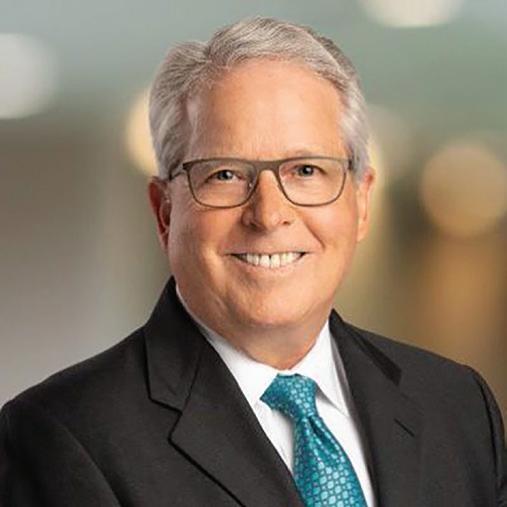
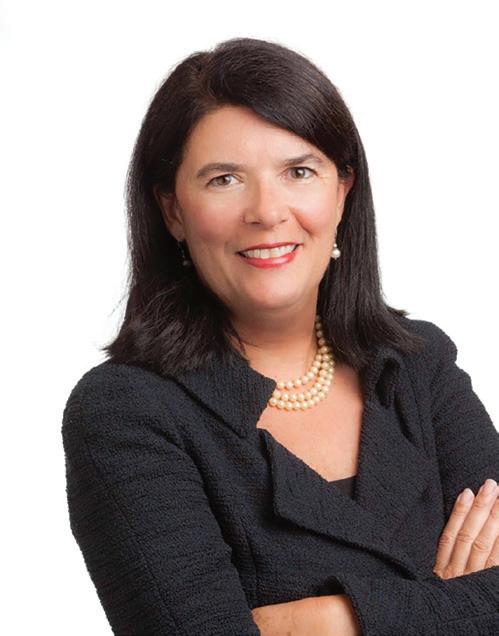
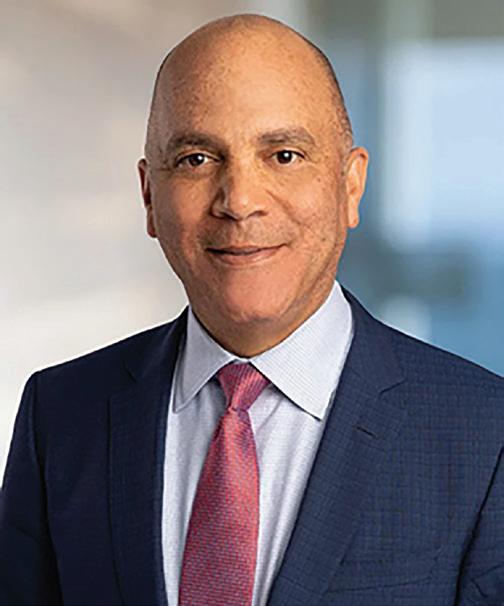
EOG drilled 16 wells on a riverbed tract based on drill-
ing permits it received from the Texas Railroad Commission. EOG’s wells surrounded a seven-mile portion of the riverbed leased by petitioner Ammonite Oil & Gas Corp. Concerned that its mineral interest would be essentially stranded, Ammonite sent a series of letters to EOG proposing the formation of 16 voluntarily pooled units, including
a 10-percent risk charge to cover the economic risks assumed in drilling the wells. EOG rejected the offer. Ammonite then sought to force-pool its riverbed tracts with EOG’s wells.
The Railroad Commission rejected Ammonite’s applications, finding that Ammonite’s offers to EOG were not “fair or reasonable” as required by the Mineral
You’re busy looking out for your clients’ needs. Who’s looking out for yours? Jim Kaighin, Jr., CFP Financial Professional ® 3305 Northland Dr., Suite 414 Austin, TX 78731 512-302-6051 kaighinjr@momentumin.com
20 AUSTINLAWYER | OCTOBER 2023
Member: FINRA/SIPC
CLOCKWISE (from top left): Alexander, Davis, Webre, Jefferson.
Interest Pooling Act (MIPA). Ammonite petitioned for judicial review in the trial court, which affirmed the Commission’s or der. The court of appeals did the same. Ammonite petitioned for review to the Supreme Court, arguing that nothing in the plain text of MIPA even requires that a risk penalty be included in a voluntary-pooling offer, so a low-risk penalty (or even the absence of one) cannot render an offer statutorily unreasonable. The court granted the petition for review.
The case documents are available at: https://search. txcourts.gov/Case.aspx?cn=21-1035&coa=cossup, and the full oral argument is available at: https://www.youtube.com/ watch?v=xhPq46WCccY&t=1521s.
In Am. Honda Motor Co. v. Milburn (21-1097), Wallace B. Jefferson of Alexander Dubose & Jefferson LLP argued for the petitioner.
Honda designed a new ceiling-mounted detachable anchor seatbelt system for the third-row middle seat of the 2011 Honda Odyssey. In November 2015, an Uber driver picked up Milburn and her friends in a 2011 Honda Odyssey. Milburn sat in the third-row middle seat and used the ceiling-mounted seatbelt to buckle herself in. An accident caused the van to overturn on its roof. Milburn hung upside down by the shoulder strap portion of her seatbelt, causing quadriplegia paralysis.
Milburn sued and settled with all defendants but Honda. Milburn asserted claims against Honda for negligence in designing, manufacturing, and marketing the van’s third-row middle seatbelt system. Milburn alleged that the seatbelt system was defective and dangerous, and that its intended method of use was counterintuitive. The jury found that Honda negligently designed the defective seatbelt system. The jury also found that
Honda was entitled to the Section 82.008(a) presumption of nonliability but that Milburn rebutted it under Section 82.008(b).
The court of appeals affirmed, holding that Honda was entitled to the presumption of nonliability but that Milburn rebutted it, and that the record contained evidence that the detachable anchor seatbelt


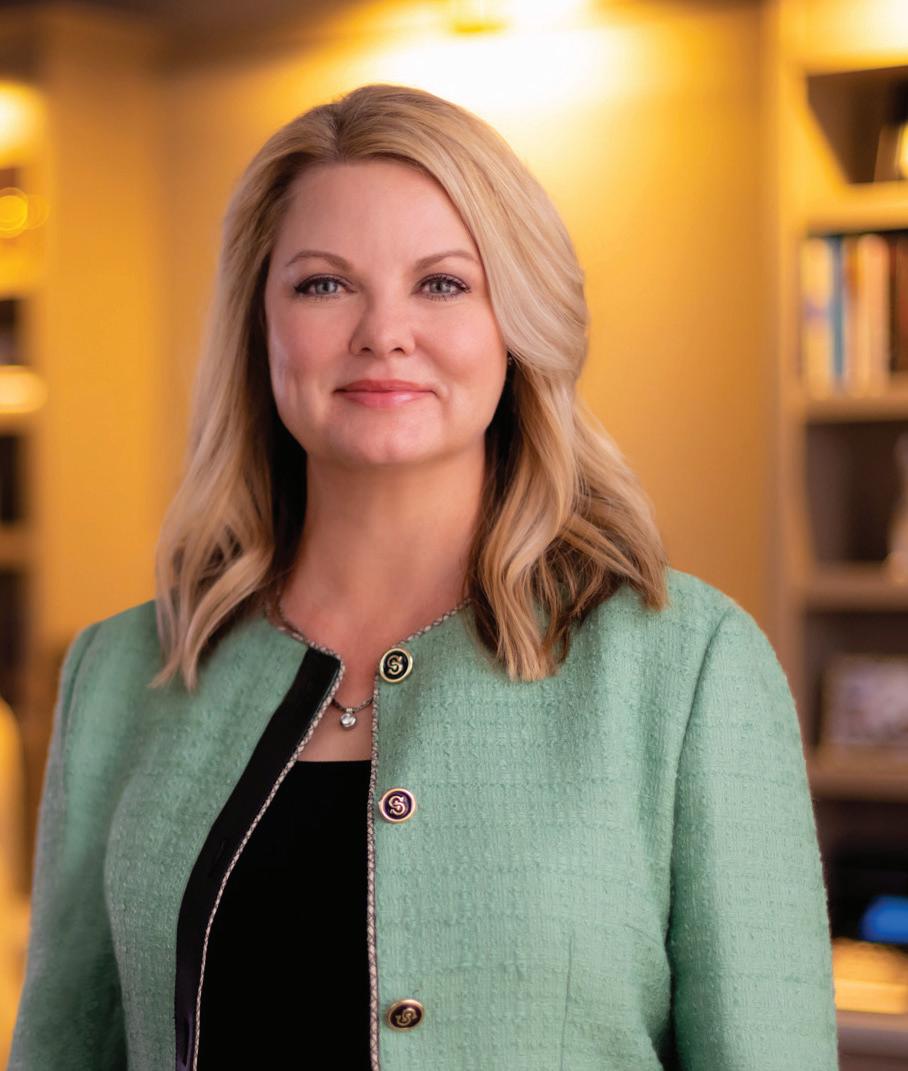
system was defectively designed, and a safer alternative exists.
Honda petitioned the Supreme Court for review, arguing that Milburn was required, but failed, to present sufficient expert testimony to rebut Section 82.008’s presumption of nonliability on regulatory inadequacy grounds. Honda contends that a “regulatory expert” must explain why the federal standards are inadequate to protect the public from unreasonable risk.

The court granted Honda’s petition for review.
The case documents are available
at: https://search.txcourts.gov/ Case.aspx?cn=21-1097&coa=cossup, and the full oral argument is available at: https://www.youtube.com/watch?v=MHVBKLW5N88&t=149s. AL




OCTOBER 2023 | AUSTINLAWYER 21
Texas Veterans Commission Awards $130,000 Grant to Austin Bar Foundation’s Veterans Legal Assistance Program

Veterans in Central Texas have garnered more support thanks to a $130,000 Funds for Veterans Assistance grant from the Texas Veterans Commission (TVC). The grant was awarded to the Austin Bar Foundation’s Veterans Legal Assistance Program (VLAP), which provides much-needed services to veterans.
Doug Lawrence, the managing attorney of VLAP, says the grant will be used to update its technology and offset some of the costs of the program.

“I am honored that the Texas Veterans Commission recognizes our contribution and commitment to the veteran community,” Lawrence said. “This grant will help us meet our objectives and enhance the direct legal services we can provide to veterans in our
community. We want to thank the members of the Texas Legislature for creating this grant program in 2009 and the Texas Veterans Commission for their dedication and continued support to Texas veterans and their families who’ve given so much to our country.”
Since Jan. 1, 2022, this small but necessary program has proudly organized 26 legal clinics, held in Austin, Lockhart, Fredericksburg, and Pflugerville, and co-produced a live webinar for veterans regarding DD-214 access, discharge upgrades, and nondisclosure/expunction of civilian criminal and arrest record requirements.
The VLAP staff and volunteers are ecstatic to have gained new support from the TVC and look forward to the opportunity to continue serving veterans and their families
at the remaining legal clinics scheduled this year.

Since 1927, the TVC’s mission has been to advocate for and provide superior service to veterans that will significantly improve the quality of life for all Texas veterans, their families, and survivors.
From 2009 through the current 2023-2024 grant cycle, over $234 million in grant funding has been awarded through 1,100 Funds for Veterans Assistance grants, serving an estimated 400,000 Texas veterans and their family members. Veterans in need of assistance can find contact information for the organizations providing help in their area at https:// www.tvc.texas.gov/.
VLAP is funded by grants from the Texas Access to Justice Foundation, Funds for Veterans
Assistance from the Texas Veterans Commission, the Texas Bar Foundation, the Central Texas Community Foundation; and support from the board of directors and members of the Austin Bar Association who volunteer their pro bono services through the program.
Anyone wishing to learn more about VLAP or to sign up as a volunteer for a future advice clinic or event is welcome to contact program staff at 512-472-0279 ext. 110 or by emailing doug@austinbar.org or leslie@austinbar.org. AL
Robert L. McRae, Certified Mediator Registered Patent Attorney 8023 Vantage Drive, Ste 1500 San Antonio, Texas 78230 210-886-9500 Email: rmcrae@gunn-lee.com www.gunn-lee.com
22 AUSTINLAWYER | OCTOBER 2023 Patrick Keel Former District Judge Mediator Arbitrator patrickkeel.com Available by video and in person.
Veterans: Beware of “VA Coaches”
Unaccredited Consultants Target Disabled Veterans by Exploiting Delays in VA Benefits Review Process
As reported in The Texas Tribune, 1 veteran households across the nation have seen an increase of predatory advertisements by companies claiming to be “medical consultants” or “benefits coaches.” These unaccredited companies promise to help veterans with disabilities submit their benefits claims to the Department of Veteran Affairs (VA) for a fee, but many veterans have reported they were misled into paying hundreds of thousands of dollars in illegally assessed fees.
Doug Lawrence, managing attorney of the Austin Bar Foundation’s Veterans Legal Assistance Program (VLAP) warns: “Lawyers, please be aware that the veteran community is being targeted by unaccredited companies seeking to exploit and profit from delays in the veteran benefits claims review process. You can help put an end to scams like these by volunteering your time at a legal advice clinic or offering pro bono or low-cost legal services to our veterans in need.”
The Department of Veteran Affairs provides a complete list

of the organizations recognized by the VA through the Office of the General Counsel accreditation search. Veterans are encouraged to use this accreditation search tool, contact their local Veterans Service Officer in their county of residence, or connect with the Texas Veterans Commission to receive FREE assistance with benefits claims and questions from accredited advisors.
VLAP is funded by grants from
VLAP Volunteers
the Texas Access to Justice Foundation, Funds for Veterans Assistance from the Texas Veterans Commission, the Texas Bar Foundation, the Central Texas Community Foundation; and support from the board of directors and members of the Austin Bar Association who volunteer their pro bono services through the program.
Anyone wishing to learn more about VLAP or to sign up as a volunteer for a future advice clinic or
event is welcome to contact program staff at 512-472-0279 ext. 110 or by emailing doug@austinbar.org or leslie@austinbar.org. AL
FOOTNOTE
1 https://www.texastribune. org/2023/07/05/veterans-disability-benefits-brian-reese-va-claims-insider/.
The Veterans Legal Assistance Program (VLAP) would like to thank the individuals listed below for their assistance at VLAP’s Sept. 9, 2023, clinic!
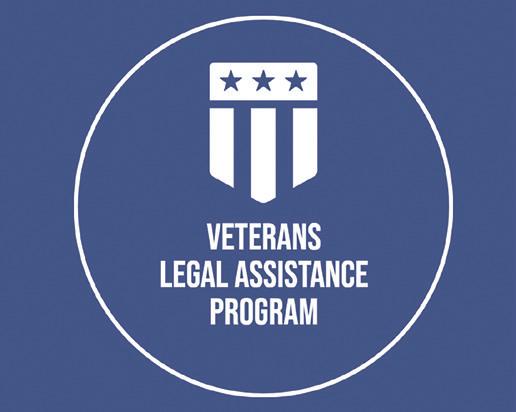
Karis Anne Parnham
Ann Price
Ronald Romero
Justin Rosas
Rodney Ruiz
Brandon Scott
Charles Smaistria
Ann Taylor
LAW STUDENTS
Emil Anaya
Katie Carmichael
Lucy Elkins
Anna Newell
Nichole Zhou
PARALEGALS
HIGH SCHOOL STUDENT
Lillian Cubriel
MIDDLE SCHOOL STUDENT
Frannie Cubriel
ATTORNEYS
Melanie Ibarra
Michael Jones
Emily Franco
Xiangyun Li
Nicole Martinez
Tom Mehaffy
Rebecca O’Connor
Geoffrey Van Olden
Charmaine Backens
Nadia Bettac
Emily Collins
Katherine Lickteig
Susanna Meringola
Jim Nolan
Sue Snyder
Carli Collins
Erin Crump
Amber Haney
Jennifer LaRose
Brittany Posadas
Celeste Rodriguez
Margaret Sheehan
Heather Zoric
OCTOBER 2023 | AUSTINLAWYER 23
Judge Lora Livingston Elected as ABA Delegate

Judge Lora Livingston (Ret.) will serve as Texas’ delegate in the American Bar Association’s House of Delegates. The House of Delegates is the ABA’s policy-making body responsible for the election of ABA officers and members of the Board of Governors.
Livingston was elected as the successor of Dallas attorney Kim J. Askew, who was term-limited.
Livingston is eligible to serve up to nine years as Texas’ delegate.
Livingston is a former judge of the 261st District Court. She was elected in 1999 and was that court’s first female African American judge. She retired from the bench at the end of 2022.
After graduating with her J.D. from the UCLA School of Law, Livingston began her career as a Reginald Heber Smith Community Lawyer Fellow with the Legal Aid Society of Central Texas. She worked for seven years in private
practice, during which she also took on pro bono cases.
“No matter the profession, I think we all have a responsibility to give back to the community,” she said in a State Bar of Texas interview. “However, with professions like lawyers and doctors, we have a heightened sense of this responsibility.”
Livingston served for 12 years on the board of the Texas Equal Access to Justice Foundation.
“I was part of a subcommittee that traveled annually to Washington, D.C., to meet with members of Congress to talk about the legal needs of poor Texans,” she said. “Over the years, we racked up some successes in convincing a number of members to support legal services funding when, in the past, they had not.”
Livingston also previously served as chair of the ABA Standing Committee on the Delivery of Legal Services.
In addition to her pro bono work, Livingston is an advocate for the rights of self-represented litigants. During her time on the bench, she was key in establishing the Travis County Self-Help Center.
Livingston has been an Austin Bar member since 1989. She currently serves as a judicial liaison for the Diversity Fellowship Program, which offers summer internships with Travis County district judges and in private practice to minority law school students.
In 2021, the Anti-Defamation League of Austin awarded Livingston the Jurisprudence Award, given to a member of the legal community who exhibits a commitment to equality, justice, fairness, and community service.
Livingston has also been the recipient of the Community Service Award from the Austin Independent School District; the Outstanding Attorney Award from the
Travis County Women Lawyers’ Association; and the Pro Bono Champion Award from the Texas Access to Justice Commission.
She has previously served on the boards of the Ann Richards School of Young Women Leaders; the Austin Symphony Orchestra; the Austin Area Urban League; and El Buen Samaritano.
Shortly before her retirement, Travis County unveiled a portrait of Livingston in the Civil and Family Courts Facility. AL
 (L-R): State Bar of Texas President Cindy Tisdale, former ABA Texas Delegate Kim J. Askew, and incoming ABA Texas Delegate Judge Lora Livingston at the ABA Annual Meeting on Aug. 8 in Denver, Colo. Photo by Kim J. Askew.
(L-R): State Bar of Texas President Cindy Tisdale, former ABA Texas Delegate Kim J. Askew, and incoming ABA Texas Delegate Judge Lora Livingston at the ABA Annual Meeting on Aug. 8 in Denver, Colo. Photo by Kim J. Askew.
Local Solutions. Global Reach. 24 AUSTINLAWYER | OCTOBER 2023
Austin Bar Fellow Appointed as Chair of Texas Board of Criminal Justice
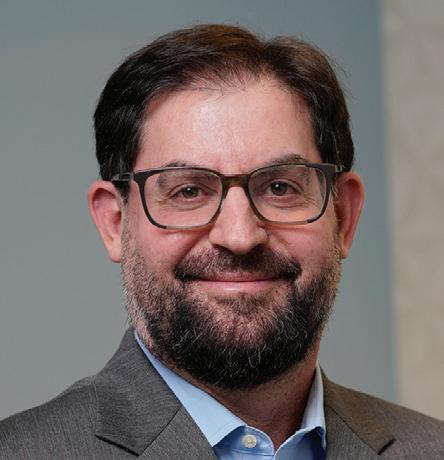
Austin Bar Fellow Eric Nichols has been appointed as chair of the Texas Board of Criminal Justice (TBCJ).
The TBCJ oversees the Texas Department of Criminal Justice and provides the department recommendations relating to confinement, supervision, rehabilitation, and reintegration of Texans convicted of felonies.
Nichols is a partner at Butler Snow LLP, an Austin Bar 100 Club member firm. Nichols has previously served as an assistant U.S. attorney for the Southern District of Texas and as deputy attorney general for criminal justice in the Office of the Texas Attorney General.
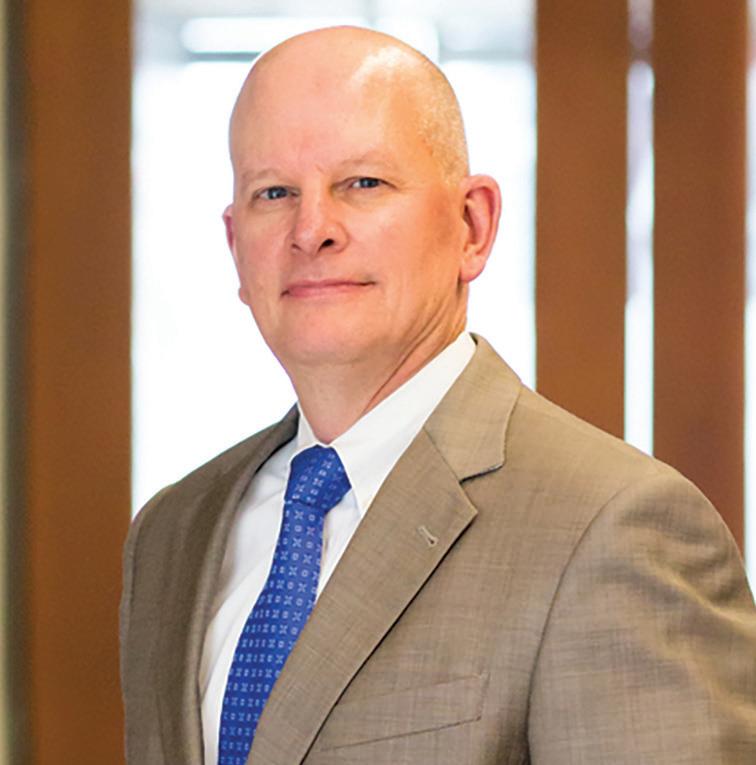

In addition to his participation in the Austin Bar, Nichols is a fellow of the American College

of Trial Lawyers and the Texas Bar Foundation; a member of the American Board of Trial Advocates and the State Bar of Texas; and a trustee of The University of Texas Law School Foundation.

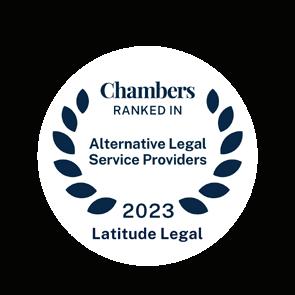
Nichols’ term on the TBCJ will expire Feb. 1, 2029. AL

PEER-LEVEL CONTRACT ATTORNEYS AND PARALEGALS Expertly matched to your needs and culture Lauren Sheinberg Director, Legal Recruiting & Placement lsheinberg@latitudelegal.com • Experienced legal talent for when quality matters • Peer-to-peer client service experience • Cost-efficient & flexible solutions • Contract engagements, contract-to-hire & permanent placement Flexible legal talent is closer than you think. CONTACT US TODAY. 512-956-8980 | LATITUDELEGAL.COM Jeff Lilly Partner, Client Services jlilly@latitudelegal.com OCTOBER 2023 | AUSTINLAWYER 25
New Laws of Interest
District Judges’ and Felony Prosecutors’ Compensation
SB 2310 establishes a third salary tier for certain prosecutors who have been in office more than 12 years. If a state prosecuting attorney or state prosecutor has been in office for more than 12 years, s/he is entitled to receive a salary equal to the salary paid to a district judge with comparable years of service as the state prosecuting attorney or state prosecutor.
This bill went into effect Sept. 1, 2023.
Initial Disclosures in Family Law Matters
The legislature added Title VI, “Civil Procedure,” regarding initial disclosures, to the Texas Family Code. The statute also states: “Notwithstanding Section 22.004, Government Code, this chapter may not be modified or repealed by a rule adopted by the Texas Supreme Court.”
This bill went into effect Sept. 1, 2023.
Standardized Forms for Protective Orders
Several bills passed in the legislature this year have now mandated that courts issue protective orders when a court finds that a party engaged in domestic violence in the past. Previously, courts were required to assess whether a party could reasonably be expected to commit domestic violence in the future before issuing a protective order.
The Office of Court Administration of the Texas Judicial System is now charged with creating standardized forms that individuals must use in filing applications and in protective orders that may result from their applications. Advocates hope these standardized forms will make it easier for law enforcement to implement the orders. Ex parte orders, including magistrates’ orders, will be as enforceable as final orders. Provisions such as an abused litigant’s home or work address may be left blank.
This mandate went into effect Sept. 1, 2023, though the Office of Court Administration has until year’s end to generate the standardized forms, and these forms do not have to be in full use until Sept. 1, 2024.
Prohibition of Tracking Without Consent
HB 2715 prohibits an individual who has committed family violence from “tracking or monitoring personal property or a motor vehicle in the possession of a person protected by an order or of a member of the family or household of a person protected by an order, without the person’s effective consent.”
Included in this statue is a prohibition on “using a tracking application on a personal electronic device in the possession of the person or the family or household member or using a tracking device” and “physically following the person or the family or household member or causing another to physically follow the person or member.”
The prohibition applies to protective or restraining orders rendered on or after Sept. 1, 2023.
Protective or restraining orders rendered before this date will be governed by the law in effect prior to this change.
When a case is dissolved, this provision is no longer in effect— tracking without consent is no longer prohibited.
Law Enforcement Must Enter Information into Statewide System
HB 660 mandates law enforcement to enter protective orders into the agency’s outstanding warrants records system. Previously, law enforcement had some discretion in whether to update these records.
This bill went into effect Sept. 1, 2023.
Brochures Relating to Domestic Abuse
This bill was already imple -
mented in May 2023, but will apply to treatment rendered on or after Jan. 1, 2024.
Medical professionals who believe that a patient they are treating for injuries is being domestically abused must immediately provide the patient with a brochure for the nearest family violence center. The medical professional must also document findings of injuries indicative of family violence in the patient’s file. The medical professional must also give the patient a second brochure generated by the Health and Human Services Commission under Section 51.A003, Human Resources Code.
Law enforcement is now also required to give these brochures to victims of family violence.
New Rules for Recording Evaluators’ Interviews with Children
HB 4062 mandates court-appointed child custody evaluators to create audio-visual recordings of their evaluations with children. These recordings will be kept confidential, “except by court order for good cause shown.”
This bill went into effect Sept. 1, 2023.
Scheduling Temporary Hearings/Mediation Prior to Temporary Hearings
HB 2671 changes Texas Family Code Section 105.001(a-1) so that, if a court mandates mediation in a case in which a temporary orders hearing has not taken place, the court may not postpone the temporary orders hearing more than 30 days after the initial date scheduled for the hearing. This change applies to cases pending in trial court as of Sept. 1, 2023, or that are filed on or after that date.
Narrowing Expert Testimony
HB 891 prohibits expert witnesses in family law matters from offering opinions on where or with whom a child should reside.
The expert witness may still testify about the qualifications and reliability of the methodology used by child custody evaluators.
This bill went into effect Sept. 1, 2023.
Continuation of Maintenance
HB 1547 subjects continuation of maintenance requests to the procedural requirements for modification cases in Texas Family Code Section 8.057.
This bill went into effect Sept. 1, 2023.
Reimbursement Claims
A spouse seeking reimbursement to a marital estate must prove:
1. that the spouse or both spouses used property of the marital estate to confer a benefit on the property of another marital estate;
2. the value of the benefit described by Subdivision (1); and
3. that unjust enrichment of the benefited estate will occur if the benefited estate is not required to reimburse the conferring estate.
The edited section specifies that a marital estate confers a benefit on another marital estate’s property if:
1. one or both spouses used property of the conferring estate to pay a debt, liability, or expense that in equity and good conscience should have been paid from the benefited estate’s property;
2. one or both spouses used property of the conferring estate to make improvements on the benefited estate’s real property, and the improvements resulted in an enhancement in the value of the benefited estate’s real property; or
3. one or both spouses used time, toil, talent, or effort to enhance the value of property of a spouse’s separate estate beyond that which was
26 AUSTINLAWYER | OCTOBER 2023
reasonably necessary to manage and preserve the spouse’s separate property, and for which the community marital estate did not receive adequate compensation.
This new section is effective for cases pending on Sept. 1, 2023.
Intentional Unemployment
SB 870 allows a court to order an obligor to enroll in a program that provides skills training or job placement services, provided that the court has found the obligor is intentionally unemployed or underemployed.
The bill went into effect Sept. 1, 2023.
Make-Up Time
SB 718 allows a court to grant additional periods of access to and possession of a child in cases where access and possession were denied as a result of CPS investigations that failed to produce findings of abuse or neglect. This change is still subject to prohibitions in Chapter 157(a-1) of the Texas Family Code, and, if good cause is shown, that access or possession should be limited or denied.
The bill went into effect Sept. 1, 2023.
Termination of Parental Rights
as a Result of Solicitation of a
Minor
HB 2658 allows a court to terminate the parent-child relationship if a party has been convicted of criminal solicitation of a minor pursuant to Section 15.031 of the Texas Penal Code.
This bill went into effect Sept. 1, 2023. Termination suits filed prior to this date are governed by the law in effect at the time.
Changes to Adoption
HB 461 waives the adoption evaluation requirement if the prospective adoptive parent is a stepparent of the child and if DFPS has reviewed its records and any records maintained by DPS relating to the prospective adoptive stepparent.
This bill went into effect Sept. 1, 2023, and applies to cases pending on that date or filed afterward.
No Maximum Age to Adopt
HB 2969 requires the Department of Family and Protective Services and any contractor working for it to implement neither a maximum age for prospective adoptive parents, nor a maximum age difference between a child and prospective adoptive parents.
This bill went into effect Sept. 1, 2023.
IV-D Virtual Hearings and Associate Judges
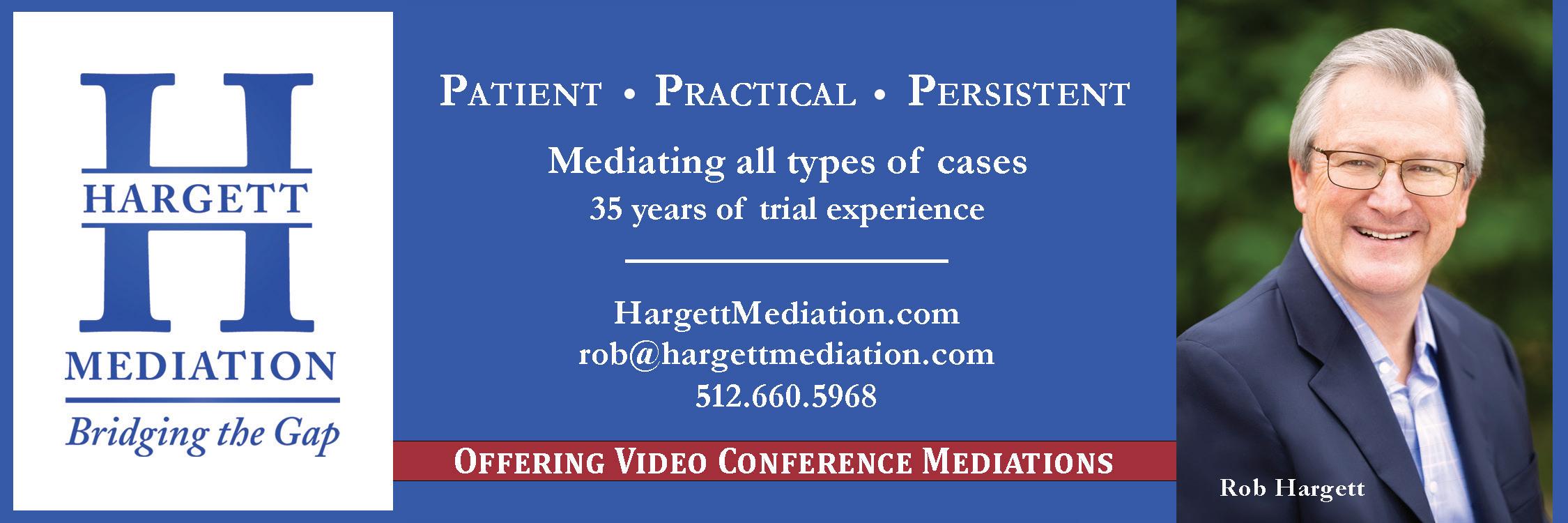
SB 870 allows IV-D proceedings to be conducted virtually by associate judges, unless a party files an objection. If a final proceeding is likely to result in a finding of contempt or revocation of community supervision, a respondent may appear in person unless the respondent waives that right. If the respondent appears in person, the associate judge must also appear in person.
This bill went into effect Sept.
1, 2023, and applies to proceedings on and after that date.
Disclosing Sanctions
HB 2384 requires candidates for the Texas Supreme Court, courts of criminal appeals, district courts, or statutory courts to provide information regarding any sanctions or censure they have been subjected to. The candidate must also provide information regarding the candidate’s legal practice, specialization (if any), and courtroom experience for the preceding five years.
If a candidate has not previously held a judicial office, the candidate must provide appellate court briefs and oral arguments presented from the preceding five years.
The candidate must also acknowledge on the application that providing false information in these matters constitutes professional misconduct.
This bill went into effect Sept. 1, 2023.
Decedent Estates and Child Support
SB 869 and 870 and HB 4765 revise the Texas Estates Code to prohibit assigning rights to or interest in property that could otherwise be used to satisfy a child support obligation. This change applies to decedents who died on or after Sept. 1, 2023.
Judges’ CLE Requirements
Judges must complete at least 16 hours of CLE after the first year of their term and every year thereafter. HB 2384 allows the State Commission on Judicial
Conduct to issue an order suspending a judge who has not met this requirement. If the judge remains noncompliant, the Office of the Attorney General is required to file suit to have the judge removed from office, pursuant to Texas Civil Practice & Remedies Code Section 66.02. This bill applies to elected and appointed judges who hold office on or after Sept. 1, 2023.
Moving the Dockets
SB 870 requires the Office of Court Administration to develop standards to ensure judges are moving their dockets. Failure to meet these standards will result in these judges being paired with mentor judges to get their dockets moving.
This bill went into effect Sept. 1, 2023.
Digital Signatures
SB 870 waives the requirement of an original signature to release a child support lien issued by a Title IV-D agency. An original signature can also be digital and must be recorded in county deed records.
This bill applies to child support lien releases executed on or after or after Sept. 1, 2023. AL
OCTOBER 2023 | AUSTINLAWYER 27
Teaching Law in a Former Communist State
Get to Know the Alternative Dispute Resolution Section’s New Chair, Steve Schulwolf
Steve Schulwolf is the new chair of the Austin Bar’s Alternative Dispute Resolution (ADR) Section.
For those unacquainted, his career path might sound familiar: He started off working for BigLaw in Chicago. Then, when he moved to Austin in 2019 because his wife got a job here, he decided to transition to ADR.
“I’ve always thought about doing it, and the time in my life was right to regain some flexibility over my schedule,” Schulwolf said.
While this story may seem familiar—or may even describe your own career—what is surprising is a two-year stint teaching in Bulgaria between 1998 and 2000.
“I found some information about a program called the Civic Education Project,” Schulwolf explained. “This program put Westerners in the universities of former Eastern Bloc countries to teach.”
The program paid for Schulwolf’s apartment in Plovdiv, Bulgaria, his airplane ticket, and a small stipend. Then he was paid monthly what a typical Bulgarian law professor would be paid–about $150 a month.

“I was walking away from a six-figure salary in BigLaw, so obviously I wasn’t doing this for the money,” he said.
When asked which former Soviet country he wanted to teach in, Schulwolf said he chose Bulgaria out of a sense of “paying it forward.”
“Bulgaria lost in World War I, and in World War II they were allies with the Nazis,” he said. “They had a fascist government in the late ’30s that enacted anti-Semitic laws, like the Germans did. They had even worked out a plan with the Germans to deport their Jews, but they didn’t. So even though they were allies with the Nazis, they were the only country in World War II whose Jewish population actually increased.”
The second reason he chose Bulgaria was its weather.
“Most people think all communist countries are cold,” he said. “Bulgaria and Greece share a border, so Bulgaria isn’t actually a giant freezer.”
Thirdly, he chose Bulgaria because he preferred to be in an outdoor café in Bulgaria, where the climate is nice, than in frigid Siberia, where the weather regularly dips below zero seven months out of the year, during a time when everybody smoked.
While in Plovdiv, Schulwolf taught classes on international law, and one of his final courses dealt with ADR, which he cotaught in Bulgarian, although he says he no longer would be able to do that today.
“As Americans, we have a sense that the Soviet legal system lacked the rule of law,” Schulwolf said. “And that was true to the extent the State was involved in a case. If the State was involved in a case, of course it was a foregone conclusion that the matter would be resolved in favor of the State.”
But the matter was different when the State was not involved.
“The vast majority of cases where the State wasn’t involved were resolved on a legal basis,” Schulwolf said. “There were people—judges, lawyers—who took pride in applying legal principles in cases where the State didn’t have a dog in the fight.”
Bulgaria’s legal traditions, like many in Europe, primarily adhere to civil law, as opposed to common law.
“In common law, our judges have a little more freedom and leniency, and we somewhat understand that not every statute is going to be perfectly drafted,” Schulwolf said. “In civil law or Napoleonic law, you’re much more reliant on codes.”
A big distinction between American or Western law and the legal system in Bulgaria at the time Schulwolf was there was that Bulgarian judges typically came right out of law school.
“A judgeship isn’t an end-of-theline goal there,” he said.
While he taught in English and the students were largely fluent
enough to understand the material he taught, the “creative arguments” he cited from common-law cases in the United States sometimes led to confusion for the students.
“During an international insurance class, I was talking to them about the pollution exclusion, which at one point had an exception for ‘sudden and accidental,’ discharges” Schulwolf said. “I showed my students a decision from the Supreme Court of Illinois in which it said the word ‘sudden,’ in the context of the pollution exclusion, does not have a temporal element, that something, if it’s unexpected, can be said to have suddenly happened even over a period of 20 years. And I had students come up to me afterward and say, ‘I have to drop the class because my understanding of English obviously isn’t good enough because I thought “sudden” does have a temporal element.’ And I said, ‘No, if you ask most Americans that, they would agree you with, “sudden” does have a temporal element. That’s just what this court found.’ It was a great way to help Bulgarian law
28 AUSTINLAWYER | OCTOBER 2023
ADR Section Chair Steve Schulwolf with Plovdiv, Bulgaria, in the background.
students learn how advocacy works in the West.”
While Schulwolf’s overall observation was that Bulgaria was, by and large, a pessimistic country at this time, he also said there were people, a lot of them students, who were optimistic regarding the country’s future.
“At the time, membership in the European Union seemed like a pipe dream,” Schulwolf said. “But there were people who, even before the fall of the U.S.S.R., recognized that certain reforms needed to happen.”
Bulgaria joined the EU in 2007. Schulwolf has regularly visited over the course of the 23 years since he left in 2000. He said that, over that period of time, the attitude of the people generally normalized—not to the point of ebullient optimism or excitement, but perhaps contentedness.
“They’re still one of the poorest countries in Europe, if not the poorest,” he said. “But the way they hide it is different than here.”
Schulwolf said the people in Bulgaria could not wrap their minds around the fact that a society as affluent as the United States would have homelessness.
“In Bulgaria, you’d go over to somebody’s apartment, and it wasn’t opulent by any means, and after you got off the couch, they’d fold it out, and two cousins would sleep there,” Schulwolf said. “A lot of times, you had 10 people sleeping in apartment we would think is just big enough for two or three.”
After leaving Bulgaria, Schulwolf returned to Chicago and was nominated to head up a USAID program on commercial legal reform back in Bulgaria. While he was waiting on a “sub-sub-subcommittee” Senate confirmation hearing, he started working with a few people who had previously worked with him at his former BigLaw firm.

“When I went to Bulgaria, they broke away and started a smaller firm,” Schulwolf said. “The USAID program ultimately fell through, and the small firm offered me partnership.”
Schulwolf rejected the offer because, while he enjoyed practicing law there, he felt the firm
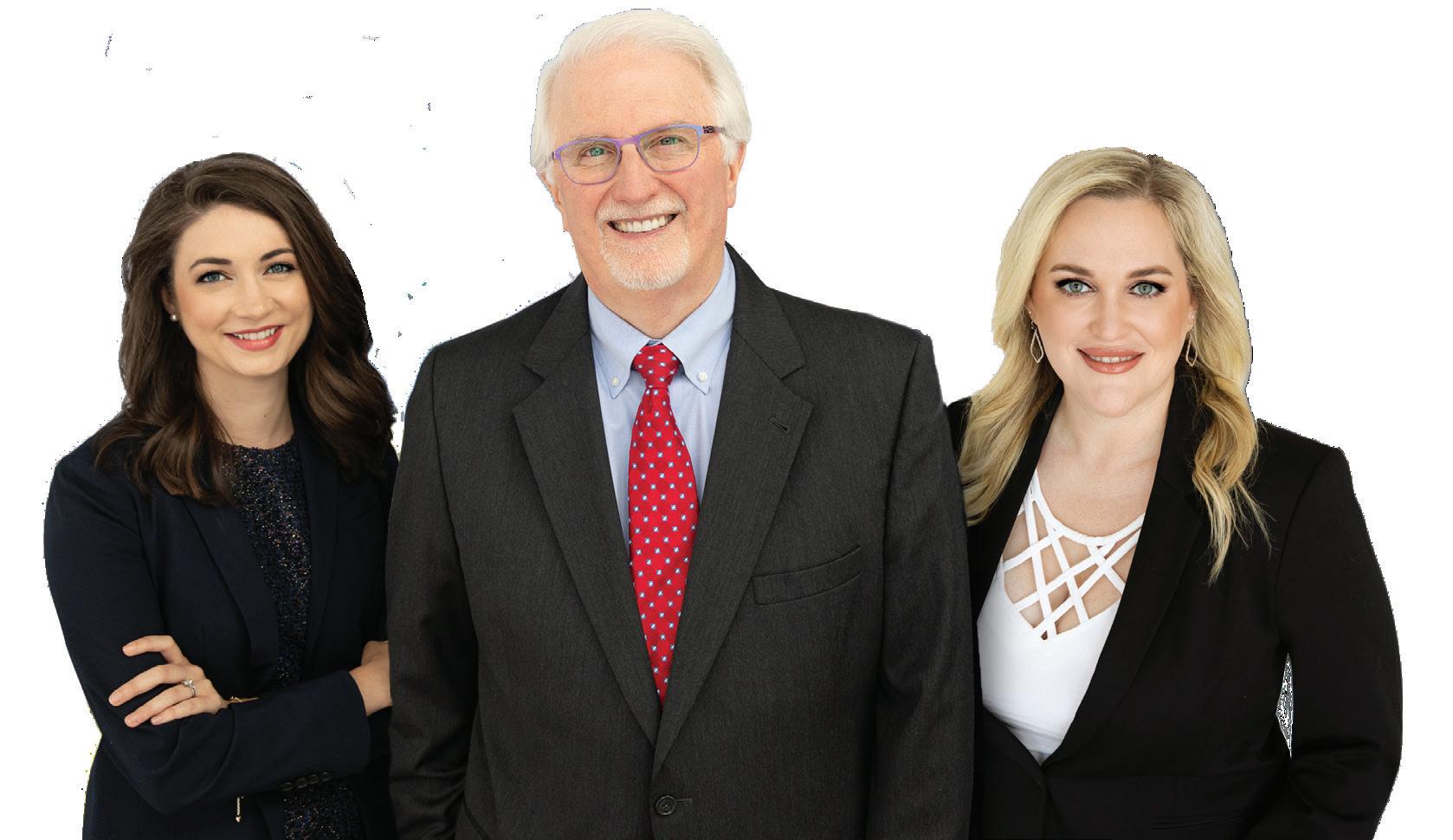
was not run well from a business perspective, something he never discussed because he thought he would only be there temporarily. This ultimately led to Schulwolf forming a new law firm.
“For 15 years at Michaels, Schulwolf & Salerno, I was doing primarily insurance coverage work and complex litigation,” he said.
Near the end of his time in Illinois, Schulwolf took a training in ADR, thinking it would be something he’d want to transition to.
“I can joke with my clients now that, if they want to go to trial instead of settling, I’m the one sleeping the night before without
any issues,” Schulwolf said. “On the other hand, I’ve done a lot of pro-bono mediations here in Texas for family-law matters, and those can be pretty intense.”
While Schulwolf acknowledges that mediation and arbitration can be hard work, he said it’s not as stressful as being the founding and only managing partner of a firm.
He says his litigating days are behind him.
Schulwolf joined the Austin Bar shortly after moving here in 2019.
“It’s a great way to get to know people and get the lay of the land,” he said.
So, will he stay in Austin?
“As someone who, in the span of two weeks, dropped everything and moved to Bulgaria, I’m never going to say, ‘There’s no way I would leave,’” he said. “But if I wind up ending my career in Austin, it wouldn’t surprise me.” AL
OCTOBER 2023 | AUSTINLAWYER 29 We’re Here. We’re Open. We’re Ready to Help. Video Conferencing and In-person Social Distancing Now Available FAMILY LAW Divorce Custody Same-Sex Marriage Appeals Modifications A Client-Centered Approach to Family Law We understand. We can help. LAW FIRM, P.C. Mediations Arbitrations Attorney
the
of Legal Specialization Attorney Jillian
in
Law
the Texas Board of Legal Specialization AustinDivorceLawyer.com 512.605.0999 Attorney
Specialization
Jimmy Vaught, Board-Certified in Family Law and Civil Appellate Law by
Texas Board
French Board-Certified
Family
by
Erin Leake Board-Certified in Family Law by the Texas Board of Legal
Ethical Issues Raised by Lawyers’ Use of ChatGPT
BY DREW HARRIS, OFFICE OF THE ATTORNEY GENERAL
At the last Austin Bench Bar conference, I presented with U.S. District Judge Robert Pitman on the ethical issues of using ChatGPT. This article summarizes some of the ethical issues raised in that discussion, along with some potential solutions that legal service providers are trying to use.
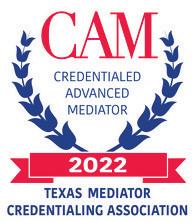

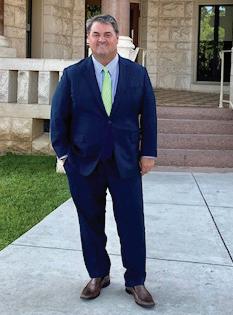
ChatGPT is a computer program operated by a company called OpenAI. It uses a chatbot to communicate with a “large language model” that has been trained on a significant portion of the text on the internet, along with books, case law, legal statutes, and other reference material. You can simply type, “Write 10 requests for production against a plaintiff in a personal injury case,” and the program will quickly generate 10 commonly used requests.
Pro se litigants will likely make extensive use of ChatGPT, as the resulting legal drafting is based on thousands of examples of lawyer work product, and is thus often indistinguishable from a lawyer’s draft. ChatGPT and similar programs will likely replace some paralegal and attorney work in initial legal drafting. This raises ethical questions about the unauthorized practice of law. On the flipside, it has substantial potential for improving access to justice.
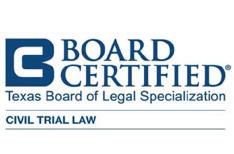
But a major problem with ChatGPT is that it has “hallucinations”—it makes up cases that do not exist. ChatGPT generates new text based on many prior examples, and some of that “new text” can be made-up cases. Two lawyers in New York were sanctioned in June 2023 for submitting a brief written by ChatGPT with ci-
tations to non-existing cases.
A radio host in Georgia has sued OpenAI for defamation because ChatGPT made up a fake lawsuit against him for embezzling money. ChatGPT has a disclaimer explaining that its outputs are not always reliable.
U.S. District Judge Brantley Starr of the Northern District of Texas has started specifically requiring attorneys to certify that no portion of any filing was generated by an AI tool like ChatGPT, or that a human being has checked any AI-generated text. Judge Stephen Vaden of the U.S. Court of International Trade reportedly became the second judge to institute such a requirement.
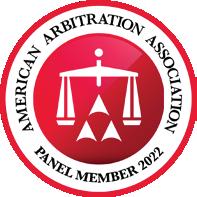

Thus, lawyers using ChatGPT must navigate ethical questions of competence and candor to the tribunal. I have spoken with an un-
named legal vendor who is working on a ChatGPT product that limits case citations to a database of actual cases to address this problem. But given how ChatGPT fundamentally works (generating new text from a huge database of prior text without any true understanding), errors are likely to remain.



Another serious ethical concern with ChatGPT is the lawyer’s duty of confidentiality. Information provided to ChatGPT is stored and added to the “large language model” used to train ChatGPT even further. Thus, lawyers should not use privileged or otherwise confidential information in prompts for ChatGPT. However, the legal service provider I spoke with indicated they had an arrangement with OpenAI where their clients’ queries were not stored or used to train ChatGPT.
Thus, while ChatGPT raises various ethical concerns, lawyers are finding ways to incorporate it into their practice with caution. Stay tuned, as ChatGPT and other AI programs will have a powerful effect on the legal profession. AL
Me di a tor, Arbi t ra tor, Spe ci a l J udge a nd Li t i ga t i on Consult a nt
Mediation • Arbitration • Litigation Consulting Special Master/Judge Proceedings JEFF ROSE RoseResolutionGroup.com jeff@roseresolutiongroup.com 512.637.0931 Mediation. Arbitration. Resolution. Senior Judge Former District Judge and Chief Justice - Texas Third Court of Appeals 30 AUSTINLAWYER | OCTOBER 2023
Senior District Judge Stephen Yelenosky
OFFICE FOR LEASE
603 West 18th Street, Austin, Tx 78701
1,850 SF refurbished house for lease. Near the new Travis County Civil & Family Courts Facility, Capital complex, and University. Perfect for a law firm or other professional office. Reception room, 5 offices, conference room, kitchenette/ breakroom, 2 private showers, 5 on-site parking spaces.

GOLD EAGLE INVESTMENTS – AUSTIN https://goldeagleinvestments.com

Helen Jobes: 512-422-9214 hjobes@goldeagleinvestments.com
John Jobes: 512-632-1259 john@goldeagleinvestments.com
ADVERTISERS

.
13. Publication Title 14. Issue Date for Circulation Data Below 15. Extent and Nature of Circulation Average No. Copies Each Issue During Preceding 12 Months No. Copies of Single Issue Published Nearest to Filing Date a. Total Number of Copies (Net press run) b. Paid Circulation (By Mail and Outside the Mail) Mailed Outside-County Paid Subscriptions Stated on PS Form 3541 (Include paid (1) distribution above nominal rate, advertiser’s proof copies, and exchange copies) Mailed In-County Paid Subscriptions Stated on PS Form 3541 (Include paid (2) distribution above nominal rate, advertiser’s proof copies, and exchange copies) Paid Distribution Outside the Mails Including Sales Through Dealers and Carriers, (3) Street Vendors, Counter Sales, and Other Paid Distribution Outside USPS® Paid Distribution by Other Classes of Mail Through the USPS (4) (e.g., First-Class Mail® c. Total Paid Distribution [Sum of 15b (1), (2), (3), and (4)] d. Free or Nominal Rate Distribution (By Mail and Outside the Mail) (1) Free or Nominal Rate Outside-County Copies included on PS Form 3541 (2) Free or Nominal Rate In-County Copies Included on PS Form 3541 Free or Nominal Rate Copies Mailed at Other Classes Through the USPS (3) (e.g., First-Class Mail) (4) Free or Nominal Rate Distribution Outside the Mail (Carriers or other means) e. Total Free or Nominal Rate Distribution (Sum of 15d (1), (2), (3) and (4)) f. Total Distribution (Sum of 15c and 15e) g. Copies not Distributed (See Instructions to Publishers #4 (page #3)) h. Total (Sum of 15f and g) i. Percent Paid (15c divided by 15f times 100) If you are claiming electronic copies, go to line 16 on page 3. If you are not claiming electronic copies, skip to line 17 on page 3. PS Form 3526, July 2014 (Page 2 of 4) Austin Lawyer 09/01/2023 76 111 1485 1695 0 0 0 0 1561 1806 0 0 0 0 0 0 0 0 0 0 1561 1695 0 0 1561 1695 100% 100% Statement of Ownership, Management, and Circulation (All Periodicals Publications Except Requester Publications) 16. Electronic Copy Circulation Average No. Copies Each Issue During Preceding 12 Months No. Copies of Single Issue Published Nearest to Filing Date a. Paid Electronic Copies b. Total Paid Print Copies (Line 15c) + Paid Electronic Copies (Line 16a) c. Total Print Distribution (Line 15f) + Paid Electronic Copies (Line 16a) d. Percent Paid (Both Print & Electronic Copies) (16b divided by 16c Í 100) certify that 50% of all my distributed copies (electronic and print) are paid above a nominal price. 17. Publication of Statement of Ownership If the publication is a general publication, publication of this statement is required. Will be printed in the ssue of this publication. Publication not required. 18. Signature and Title of Editor, Publisher, Business Manager, or Owner Date I certify that all information furnished on this form is true and complete. understand that anyone who furnishes false or misleading information on this form or who omits material or information requested on the form may be subject to criminal sanctions (including fines and imprisonment) and/or civil sanctions (including civil penalties). PS Form 3526, July 2014 (Page 3 of 4) PRIVACY NOTICE: See our privacy policy on www.usps.com 0 0 1561 1695 1561 1695 100% 100% � � 10/1/23 09/27/2023 Statement of Ownership, Management, and Circulation (All Periodicals Publications Except Requester Publications) 1.Publication Title 2.Publication Number 3.Filing Date 4.Issue Frequency 5. Number of Issues Published Annually 6.Annual Subscription Price 7.Complete Mailing Address of Known Office of Publication (Not printer) (Street, city, county, state, and ZIP+4 ® Contact Person Telephone (Include area code) 8. Complete Mailing Address of Headquarters or General Business Office of Publisher (Not printer) 9. Full Names and Complete Mailing Addresses of Publisher, Editor, and Managing Editor (Do not leave blank) Publisher (Name and complete mailing address) Editor (Name and complete mailing address) Managing Editor (Name and complete mailing address) 10. Owner (Do not leave blank. If the publication is owned by a corporation, give the name and address of the corporation immediately followed by the names and addresses of all stockholders owning or holding 1 percent or more of the total amount of stock. If not owned by a corporation, give the names and addresses of the individual owners. If owned by a partnership or other unincorporated firm, give its name and address as well as those of each individual owner. If the publication is published by a nonprofit organization, give its name and address.) Full Name Complete Mailing Address 11. Known Bondholders, Mortgagees, and Other Security Holders Owning or Holding 1 Percent or More of Total Amount of Bonds, Mortgages, or Other Securities. If none, check box None Full Name Complete Mailing Address 12. Tax Status (For completion by nonprofit organizations authorized to mail at nonprofit rates) (Check one) The purpose, function, and nonprofit status of this organization and the exempt status for federal income tax purposes: Has Not Changed During Preceding 12 Months Has Changed During Preceding 12 Months (Publisher must submit explanation of change with this statement) PS Form 3526 July 2014 [Page 1 of 4 (see instructions page 4)] PSN: 7530-01-000-9931 PRIVACY NOTICE: See our privacy policy on www.usps.com Austin Lawyer 1071-0353 09/29/2023 monthly except combined July/August, December/January 10 $10 712 W. 16th Street Austin, Texas Travis County 78701 Billy Huntsman (512) 472-0279 712 W. 16th Street Austin, Texas Travis County 78701 Sail House Publishing, 3510 Crowncrest Drive, Austin, TX 78759 Rachael K. Jones 712 W. 16th Street Austin, Texas Travis County 78701 Billy Huntsman 712 W. 16th Street Austin, Texas Travis County 78701 Austin Bar Association 712 W. 16th Street Austin, Texas Travis County 78701 � � Statement of Ownership, Management, and Circulation (All Periodicals Publications Except Requester Publications) 1.Publication Title 2.Publication Number 3.Filing Date 4.Issue Frequency 5. Number of Issues Published Annually 6.Annual Subscription Price 7.Complete Mailing Address of Known Office of Publication (Not printer) (Street, city, county, state, and ZIP+4 ® Contact Person Telephone (Include area code) 8. Complete Mailing Address of Headquarters or General Business Office of Publisher (Not printer) 9. Full Names and Complete Mailing Addresses of Publisher, Editor, and Managing Editor (Do not leave blank) Publisher (Name and complete mailing address) Editor (Name and complete mailing address) Managing Editor (Name and complete mailing address) 10. Owner (Do not leave blank. If the publication is owned by a corporation, give the name and address of the corporation immediately followed by the names and addresses of all stockholders owning or holding 1 percent or more of the total amount of stock. If not owned by a corporation, give the names and addresses of the individual owners. If owned by a partnership or other unincorporated firm, give its name and address as well as those of each individual owner. If the publication is published by a nonprofit organization, give its name and address.) Full Name Complete Mailing Address 11. Known Bondholders, Mortgagees, and Other Security Holders Owning or Holding 1 Percent or More of Total Amount of Bonds, Mortgages, or Other Securities. If none, check box None Full Name Complete Mailing Address 12. Tax Status (For completion by nonprofit organizations authorized to mail at nonprofit rates) (Check one) The purpose, function, and nonprofit status of this organization and the exempt status for federal income tax purposes: Has Not Changed During Preceding 12 Months Has Changed During Preceding 12 Months (Publisher must submit explanation of change with this statement) PS Form 3526 July 2014 [Page 1 of 4 (see instructions page 4)] PSN: 7530-01-000-9931 PRIVACY NOTICE: See our privacy policy on www.usps.com Austin Lawyer 1071-0353 09/29/2023 monthly except combined July/August, December/January 10 $10 712 W. 16th Street Austin, Texas Travis County 78701 Billy Huntsman (512) 472-0279 712 W. 16th Street Austin, Texas Travis County 78701 Sail House Publishing, 3510 Crowncrest Drive, Austin, TX 78759 Rachael K. Jones 712 W. 16th Street Austin, Texas Travis County 78701 Billy Huntsman 712 W. 16th Street Austin, Texas Travis County 78701 Austin Bar Association 712 W. 16th Street Austin, Texas Travis County 78701 � � 7.Complete Mailing Address of Known Office of Publication (Not printer) (Street, city, county, state, and ZIP+4 ® Contact Person Telephone (Include area code) 8. Complete Mailing Address of Headquarters or General Business Office of Publisher (Not printer) 9. Full Names and Complete Mailing Addresses of Publisher, Editor, and Managing Editor (Do not leave blank) Publisher (Name and complete mailing address) Editor (Name and complete mailing address) Managing Editor (Name and complete mailing address) 10. Owner (Do not leave blank. If the publication is owned by a corporation, give the name and address of the corporation immediately followed by the names and addresses of all stockholders owning or holding 1 percent or more of the total amount of stock. If not owned by a corporation, give the names and addresses of the individual owners. If owned by a partnership or other unincorporated firm, give its name and address as well as those of each individual owner. If the publication is published by a nonprofit organization, give its name and address.) Full Name Complete Mailing Address 11. Known Bondholders, Mortgagees, and Other Security Holders Owning or Holding 1 Percent or More of Total Amount of Bonds, Mortgages, or Other Securities. If none, check box None Full Name Complete Mailing Address 12. Tax Status (For completion by nonprofit organizations authorized to mail at nonprofit rates) (Check one) The purpose, function, and nonprofit status of this organization and the exempt status for federal income tax purposes: Has Not Changed During Preceding 12 Months Has Changed During Preceding 12 Months (Publisher must submit explanation of change with this statement) PS Form 3526 July 2014 [Page 1 of 4 (see instructions page 4)] PSN: 7530-01-000-9931 PRIVACY NOTICE: See our privacy policy on www.usps.com 712 W. 16th Street Austin, Texas Travis County 78701 Billy Huntsman (512) 472-0279 712 W. 16th Street Austin, Texas Travis County 78701 Sail House Publishing, 3510 Crowncrest Drive, Austin, TX 78759 Rachael K. Jones W. 16th Street Austin, Texas Travis County 78701 Billy Huntsman 712 W. 16th Street Austin, Texas Travis County 78701 Austin Bar Association 712 W. 16th Street Austin, Texas Travis County 78701 � � OCTOBER 2023 | AUSTINLAWYER 31 Apple Leasing 8 Armbrust & Brown, PLLC 14 Bollier Ciccone, LLP 21 Broadway Bank 32 Cofer & Connelly, PLLC 5 Crowe LLP / Briggs & Veselka Co. 11 Foster Global, LLP 4 Gunn, Lee & Cave, PC 22 Hargett Mediation, LLC 27 JAMS 24 Judge Stephen Yelenosky 30 Knolle, Holcomb, Callahan & Taylor, P.C. 31 Lakeside Mediation Center 7 Latitude 25 LawPay 2 Momentum Independent Network 20 MORSA Capital 11 Noelke Maples St. Leger Bryant, LLP 7 Patrick Keel 22 Phyllis Warner 31 Rose Resolution Group 30 Scott Baker Mediation, LLC 15 She Spies Private Eye, Inc. 13 Slack Davis Sanger 17 Texas Lawyer Insurance Exchange 3 The Snell Law Firm, PLLC 9 Thomas Esparza, Jr. PC 3 UT Austin Center for Professional Education 16 Vaught Law Firm 29

WEALTH & PRIVATE BANKING Premium Modern Banking Broadway Bank’s Private Banking team provides premium modern banking and financial services curated specifically for your personal and business needs.1 Our Private Bankers get to know you personally and professionally to tailor precise financial strategies. Dedicated Private Banker: Your single point of contact, who will clear your path to any account, loan, investment, financial information or solution you require for yourself, your family and your business. Private Access Account²: An exclusive interest-bearing account for Private Banking clients with no maintenance fee and our Private Banking debit card. Award-winning Online and Mobile Banking: Manage your finances anywhere with ease and security. Learn more about our Private Banking solutions: broadway.bank/private • (512) 465-6564 1Membership qualifications for Private Banking at Broadway Bank apply. All loans subject to credit approval, verification and collateral evaluation. 2The Truth in Savings Act requires disclosures to be available for all consumer deposit accounts. Full disclosure is available at any Broadway Bank location or by calling 1-800-531-7650. Programs, interest rates, terms and conditions are subject to change without notice. Other restrictions and limitations may apply. Member FDIC. Rev. 08/23 #1172171326
























 Jaynie Badgett
Liz Duggan
Mark Pryor
Rick Cofer
Garrett Emerson
Ramey Ko
Alyse Munrose
Jeffrey Connelly
Geoffrey Puryear
Natalia Tsokos
Jaynie Badgett
Liz Duggan
Mark Pryor
Rick Cofer
Garrett Emerson
Ramey Ko
Alyse Munrose
Jeffrey Connelly
Geoffrey Puryear
Natalia Tsokos



































































 (L-R): State Bar of Texas President Cindy Tisdale, former ABA Texas Delegate Kim J. Askew, and incoming ABA Texas Delegate Judge Lora Livingston at the ABA Annual Meeting on Aug. 8 in Denver, Colo. Photo by Kim J. Askew.
(L-R): State Bar of Texas President Cindy Tisdale, former ABA Texas Delegate Kim J. Askew, and incoming ABA Texas Delegate Judge Lora Livingston at the ABA Annual Meeting on Aug. 8 in Denver, Colo. Photo by Kim J. Askew.






















